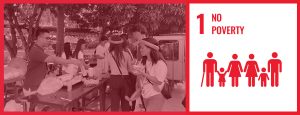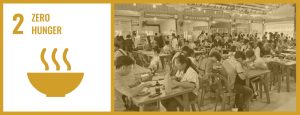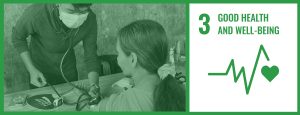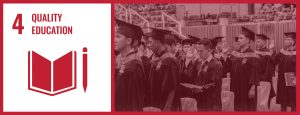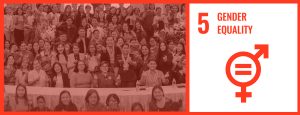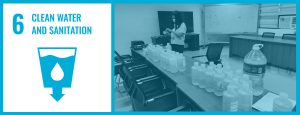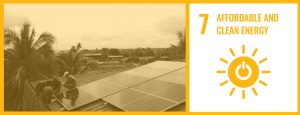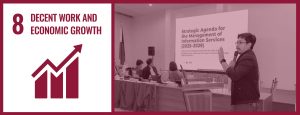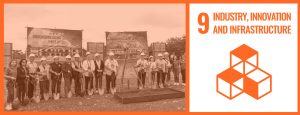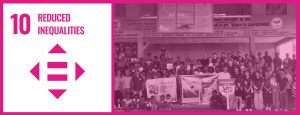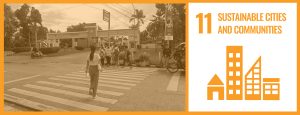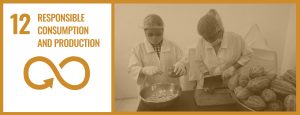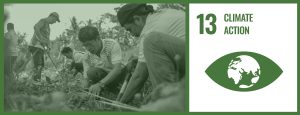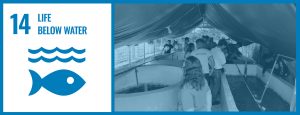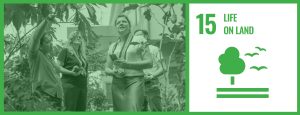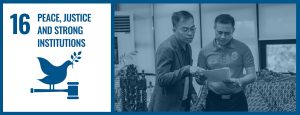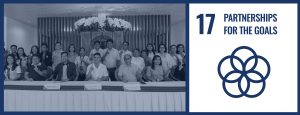2024 Reports | SDG 1 – No Poverty

As an academic institution, ISU profoundly understands the pivotal role of education in defining the lives of every determined individual as they make their ways in their respective communities. ISU believes in the promising opportunity of education in empowering people against their respective predicaments. Hence, investing in people and young minds produces rippling effects for community empowerment, thereby reducing intergenerational poverty incidences.
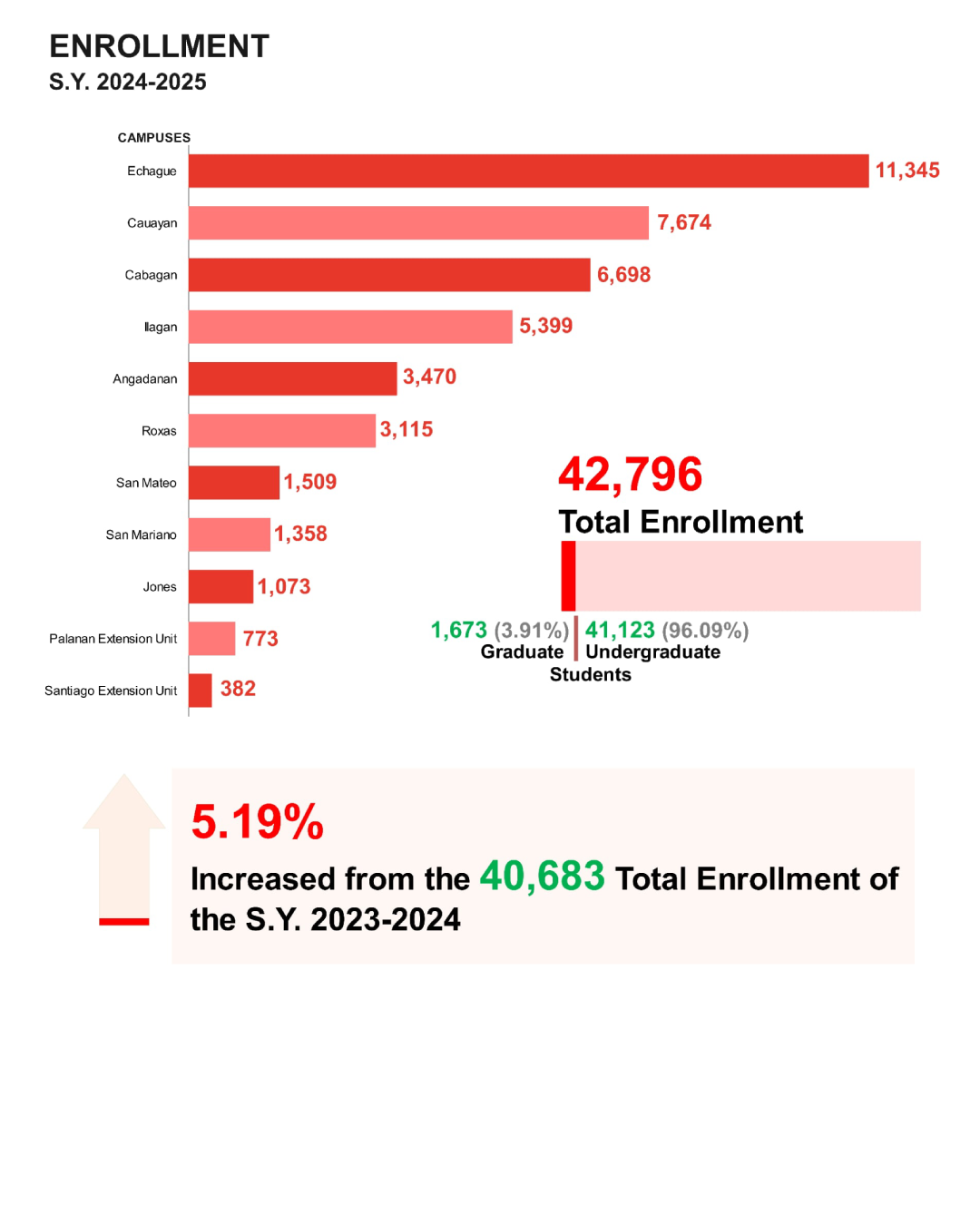
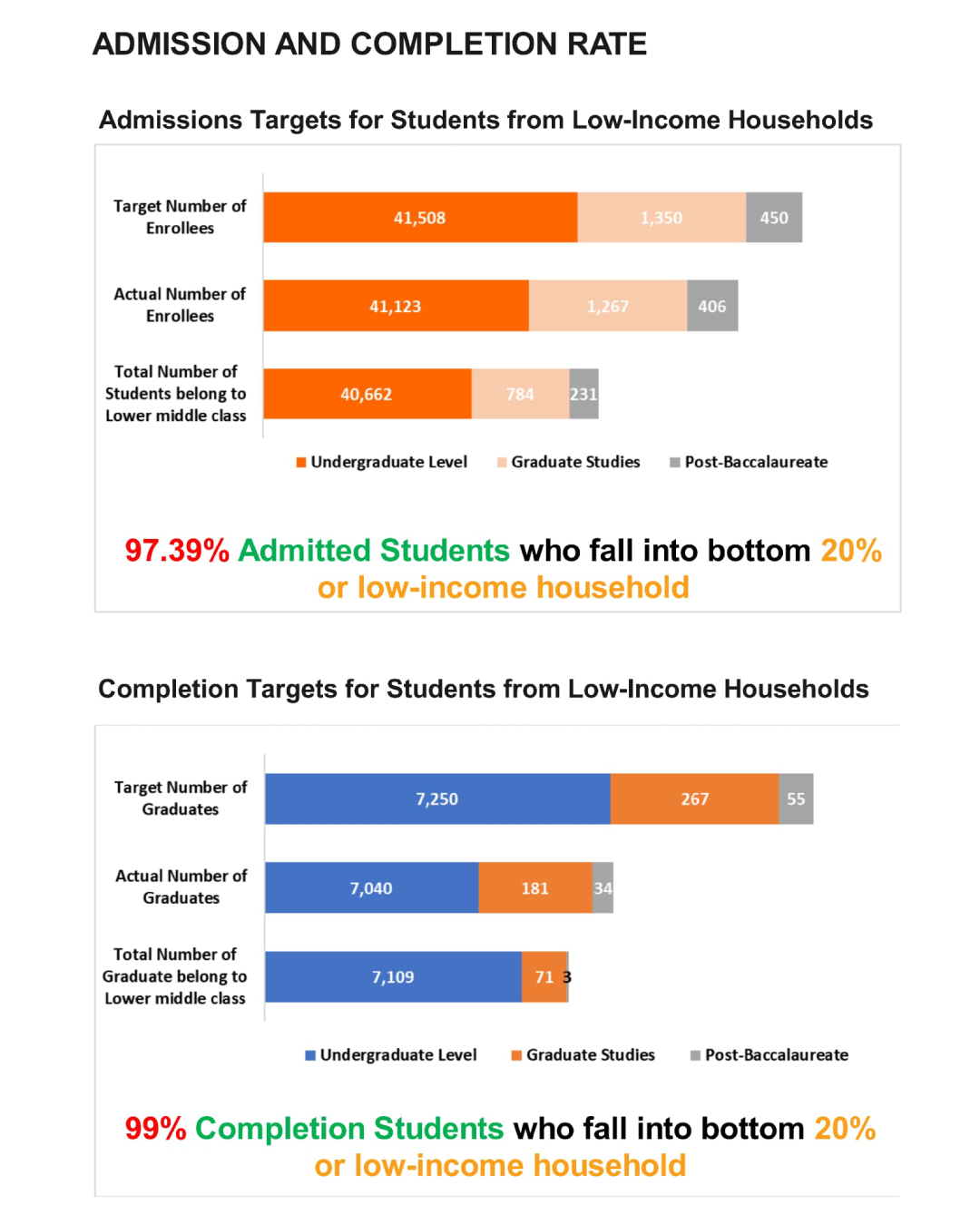
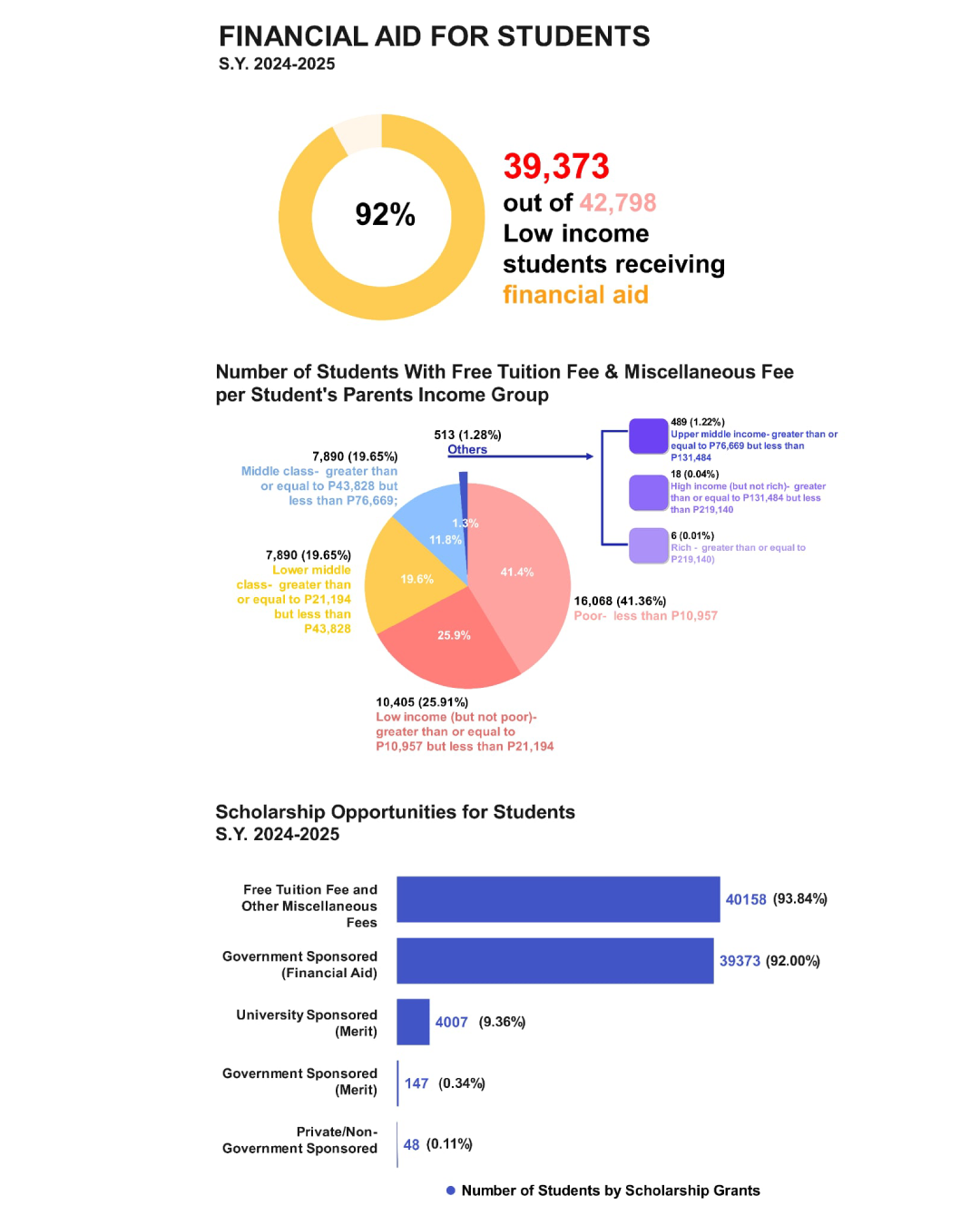
PROPORTION OF STUDENTS RECEIVING FINANCIAL AID TO ATTEND UNIVERSITY BECAUSE OF POVERTY
Student Enrollment
| Campus | Number of Students |
|---|---|
| Echague | 11,345 |
| Angadanan | 3,470 |
| Cabagan | 6,698 |
| Cauayan | 7,674 |
| Ilagan | 5,399 |
| Jones | 1,009 |
| Palanan | 773 |
| Roxas | 3,115 |
| San Mariano | 1,358 |
| San Mateo | 1,509 |
| Santiago | 382 |
| TOTAL | 42,796 |
Students Parent Income Group
| Students’ Parents Income (Source: PIDS) | Total Number of Students 2023-2024 |
|---|---|
| Rich – greater than or equal to P219,140 | 103 |
| High income (but not rich)- greater than or equal to P131,484 but less than P219,140 | 231 |
| Upper middle income- greater than or equal to P76,669 but less than P131,484 | 785 |
| Middle class- greater than or equal to P43,828 but less than P76,669 | 4,875 |
| Lower middle class- greater than or equal to P21,194 but less than P43,828 | 9,726 |
| Low income (but not poor)- greater than or equal to P10,957 but less than P21,194 | 10,428 |
| Poor- less than P10,957 | 16,648 |
| Total | 42,796 |
Admissions and Completion Targets for Students from Low-Income Households
| Students’ Parents Income (Source: PIDS) | Total Number of Students 2023-2024 |
|---|---|
| Middle class- greater than or equal to P43,828 but less than P76,669; | 4,875 |
| Lower middle class- greater than or equal to P21,194 but less than P43,828 | 9,726 |
| Low income (but not poor)- greater than or equal to P10,957 but less than P21,194 | 10,428 |
| Poor- less than P10,957 | 16,648 |
| Total | 41,677 |
UNIVERSITY ANTI-POVERTY PROGRAMS
Isabela State University (ISU), as a state-funded higher education institution, has a clear social mandate to prioritize the educational access of students coming from the lowest income sectors of society. In line with Republic Act 10931 (Universal Access to Quality Tertiary Education Act) and its commitment to SDG 1, the university explicitly integrates preferential admission and completion targets for students belonging to households earning ₱43,000 and below monthly income, classified as low to lower-middle class based on Philippine Statistics Authority data.
Bottom financial quintile admission target
| Category | Target Number of Enrollees | Actual Number of Enrollees | Total Number of Students belong to Lower middle class |
|---|---|---|---|
| Undergraduate (Bachelors Program) | 41,508 | 41,123 | 40,662 |
| Graduate Studies (Masteral and Doctoral Program | 1,350 | 1,267 | 784 |
| Post-Baccalaureate (Medicine, Juris Doctor, PDDSA, GDCE) | 450 | 406 | 231 |
| TOTAL | 43,308 | 42,796 | 41,677 |
| Percentage of Admitted Students who fall into bottom 20% or low-income household | 97.39% |
In 2024, ISU set a proactive target of 43,308 enrollees across undergraduate, graduate, and post-baccalaureate programs, with a strong focus on admitting students from low-income households. The University successfully admitted 42,796 students, of which 41,677 or 97.39% belonged to low-income households. This clearly demonstrates that ISU not only complies with RA 10931, but also strategically prioritizes access for marginalized learners through deliberate admission policies.
To ensure that access translates into academic success and eventual completion, ISU supplements free tuition with a comprehensive support ecosystem such as scholarship programs, student assistant and loan schemes, free transportation, free coffee, bread and porridge, free internet, transportation, mentoring and counseling services, access to learning facilities, and livelihood and skills training programs.
These interventions enable disadvantaged students not just to enter the University, but to thrive and graduate, embodying ISU’s mission of reducing poverty by empowering learners toward upward mobility and social transformation.
Bottom financial quintile student success
| Category | Target Number of Graduates | Actual Number of Graduates | Total Number of Graduates belong to Lower middle class |
|---|---|---|---|
| Undergraduate (Bachelors Program) | 7,250 | 7,040 | 7,109 |
| Graduate Studies (Masteral and Doctoral Program | 267 | 181 | 71 |
| Post-Baccalaureate (Medicine, Juris Doctor, PDDSA, GDCE) | 55 | 34 | 3 |
| TOTAL | 7,572 | 7,255 | 7,183 |
| Percentage of graduates who fall into bottom 20% or low-income household | 99% |
The Registrar’s Office and Office of Student Affairs and Services (OSAS) established a graduation and completion target of 7,572 students for Academic Year 2024, with a specific mandate that at least 75% of these graduates must come from households within the bottom 20% income group or low-income household. To support this goal, OSAS implemented a series of responsive student care interventions addressing academic, financial, psychosocial, and personal concerns. These include counseling and mentoring services, retention and re-engagement programs, emergency financial assistance, flexible learning support, and reintegration mechanisms for at-risk students.
For 2024, ISU recorded a total of 7,255 actual graduates, of which 7,183 or 99% belong to low-income households. This performance significantly surpassed the original 75% target, demonstrating the University’s strong capacity not only to admit but also to successfully graduate students from disadvantaged economic backgrounds. Through this sustained commitment, ISU continues to convert access into upward mobility, solidifying its role as a driver of poverty reduction through higher education.
ISU’s institutional policies clearly demonstrate that poverty is not a barrier to education. By achieving high admission and completion rates among low-income students, the university directly contributes to poverty reduction through higher education attainment, aligning with both national mandates and SDG 1 global indicators.
Low-income student support
Implementation of Free Higher Education Act
Starting Academic Year 2018-2019, the Isabela State University is one of the implementers of 𝙁𝙍𝙀𝙀 𝙃𝙄𝙂𝙃𝙀𝙍 𝙀𝘿𝙐𝘾𝘼𝙏𝙄𝙊𝙉 𝙋𝙍𝙊𝙂𝙍𝘼𝙈 under the Republic Act 10931 or Universal Access to Quality Tertiary Education Act (UAQTEA). All undergraduate students enrolled in the University are 𝙛𝙧𝙚𝙚 of charge in payment of 𝙩𝙪𝙞𝙩𝙞𝙤𝙣, 𝙢𝙞𝙨𝙘𝙚𝙡𝙡𝙖𝙣𝙚𝙤𝙪𝙨, 𝙖𝙣𝙙 𝙤𝙩𝙝𝙚𝙧 𝙨𝙘𝙝𝙤𝙤𝙡 𝙛𝙚𝙚𝙨.
| School Year | Number of Students | Number of Students with Free Tuition Fee and Other Miscellaneous Fees | Percentage |
|---|---|---|---|
| 2021-2022 | 40,127 | 37,553 | 93.58 |
| 2022-2023 | 39,729 | 37,729 | 94.96 |
| 2023-2024 | 40,420 | 38,460 | 95.15 |
| 2024-2025 | 42,796 | 40,158 | 93.84 |
For SY 2024-2025, the university has a total population of 42, 796 students from both undergraduate and graduate programs wherein 93.84% or 40,158 of them are not paying their tuition fees and other miscellaneous fees.
Financial Aid for Students
| Scholarship | Number of Scholars/Grantees | Percentage |
|---|---|---|
| University Sponsored (Merit) | 4,007 | 9.36 |
| Government Sponsored (Merit) | 147 | 0.34 |
| Government Sponsored (Financial Aid) | 39,373 | 92 |
| Private/Non-Government Sponsored | 48 | 0.11 |
| Free Tuition Fee and Other Miscellaneous Fees | 40,158 | 93.84 |
Program And Initiatives for Students
The Office of Student Affairs and Services (OSAS) has institutionalized a comprehensive support system to ensure that students, particularly those from financially challenged backgrounds that are fully equipped to succeed academically and complete their studies on time. To achieve this, the University implemented a range of responsive programs and initiatives, including:
1. List of Scholarship Opportunities
In pursuit of inclusive and equitable access to quality education, the University upholds its sustainability mandate by expanding scholarship and financial assistance programs that enable students from economically disadvantaged backgrounds to pursue higher learning without financial barriers. These scholarships are designed to recognize academic excellence, leadership potential, community involvement, and athletic achievement, ensuring that deserving students are supported not only in terms of tuition coverage but also in their holistic development as future leaders and nation-builders.
1.1 University Sponsored
Based on Board Resolution No. 65, s. 2018, the Isabela State University Scholarship Unit administers merit-based scholarship programs in accordance with established university policies and guidelines. As part of its commitment to academic excellence and equitable incentive distribution, the University has adopted a standing policy whereby scholars who are already beneficiaries of free tuition and/or miscellaneous fee privileges shall instead receive their corresponding entitlements in the form of cash incentives, equivalent to the assessed value of their waived fees. This mechanism ensures that student achievements are appropriately recognized and rewarded, while allowing merit scholars to utilize their benefits for other essential academic and living expenses, thereby enhancing retention and completion outcomes.
| No. | Particulars | Privileges | Number of Scholars/ Grantees | Total |
|---|---|---|---|---|
| 1 | Athletes Scholarship | |||
| National Level | 1,500/sem | 6 | 9,000.00 | |
| Regional Level | 1,500/sem | 19 | 28,500.00 | |
| Quadrangular Level (University) | 1,500/sem | 1 | 1,500.00 | |
| 2 | Academic Scholarship | |||
| University Scholarship | 3,000/sem | 737 | 2,211,000.00 | |
| College Scholarship | 2,000/sem | 2,895 | 5,790,000.00 | |
| 3 | Entrance Scholarship with Highest Honor | 3,000/sem | 34 | 102,000.00 |
| 4 | Faculty Employee Assistantship | 75% Discount on TF/sem | 25 | 121,050.00 |
| 5 | ROTC Officer Scholarship | |||
| Corp Commander | 2,000/sem | 1 | 2,000 | |
| Other Officers | 1,500/sem | 71 | 106,500.00 | |
| 6 | Socio-Cultural Scholarship | |||
| Quadrangular Level (University) | 1,500/sem | 34 | 51,000.00 | |
| 7 | Student Organization Scholarship | |||
| SSC President | 2,000/sem | 4 | 8,000.00 | |
| SSC Vice President | 1,500/sem | 4 | 6,000.00 | |
| SSC Secretary | 1,500/sem | 6 | 9,000.00 | |
| SSC Treasurer | 1,500/sem | 6 | 9,000.00 | |
| SSC Auditor | 1,500/sem | 6 | 9,000.00 | |
| SSC Accountant | 1,500/sem | 6 | 9,000.00 | |
| SSC PRO | 1,500/sem | 2 | 3,000.00 | |
| SBO President | 1,500/sem | 22 | 33,000.00 | |
| 8 | Student Publication Scholarship | |||
| Editor-In-Chief | 3,000/sem | 3 | 9,000.00 | |
| Associate Editor-In-Chief | 2,000/sem | 7 | 14,000.00 | |
| Section Editor, Layout Artist, Cartoonist | 1,500/sem | 61 | 91,500.00 | |
| Official Writers | 1,000/sem | 57 | 57,000.00 | |
| TOTAL | 4,007 | 8,680,050.00 |
In addition to the Free Tuition and Miscellaneous Fee benefits mandated under Republic Act 10931, the University further strengthens its commitment to SDG by facilitating access to a wide range of educational assistance programs funded by various national and local government agencies. These include grants and scholarships provided by the Commission on Higher Education (CHED), Department of Agriculture (DA), as well as Congressional, Senatorial, and Municipal Scholarship Programs. Collectively, these funding mechanisms support thousands of financially disadvantaged students across all ISU campuses, ensuring that economic status does not hinder access to higher education.
Furthermore, Isabela State University serves as a key partner institution in the implementation of the Bojie-Rodito Opportunities Education Assistance Program (BRO-Ed) of the Provincial Government of Isabela. Under this initiative, every farmer-family is guaranteed one college scholarship slot, providing direct educational support to smallholder farmers who aspire to produce at least one college graduate per household. This program not only reduces the financial burden on agricultural families but also serves as an incentive for increased productivity and community upliftment.
Through these extensive scholarship linkages, ISU reinforces its role as a social equalizer, converting education into a concrete instrument for poverty alleviation and rural development.
1.2 Government Sponsored (Merit)
| No. | Particulars | Privileges | Number of Scholars/ Grantees | Total |
|---|---|---|---|---|
| Government Sponsored (Merit) | ||||
| 1 | CHED CSP SCHOLARSHIP PROGRAM | 40,000/sem | 3 | 120,000.00 |
| 2 | CHED MERIT SCHOLARSHIP PROGRAM (CMSP) FULL | 40,000/sem | 1 | 40,000.00 |
| 3 | CHED MERIT SCHOLARSHIP PROGRAM (CMSP) HALF | 20,000/sem | 6 | 120,000.00 |
| 4 | COSHO SCHOLARSHIP | 70,000/sem | 4 | 280,000.00 |
| 5 | DA – NTA – TFDSP SCHOLARSHIP | 7,000/sem | 9 | 63,000.00 |
| 6 | DAT – TESDA SCHOLARSHIP PROGRAM | 19,000/sem | 7 | 133,000.00 |
| 7 | DOST-SEI SCHOLARIP PROGRAM | 55,000/sem | 73 | 4,015,000.00 |
| 8 | SIDA-SGP SCHOLARSHIP PROGRAM (SUGARCAINE) | 55,000/sem | 9 | 495,000.00 |
| 9 | MEDICAL SCHOLARSHIP AND RETURN SERVICE (MSRS) PROGRAM | 88,500 stipend plus school fees/sem | 35 | 3,097,500.00 |
| TOTAL | 147 | 8,363,500.00 |
1.3 Government Sponsored (Financial Aid)
| No. | Particulars | Privileges | Number of Scholars/ Grantees | Total |
|---|---|---|---|---|
| Government Sponsored (Financial Aid) | ||||
| 1 | BRO FOR EDUCATION PROGRAM | 3,000/sem | 10,452 | 31,356,000.00 |
| 2 | CHED TULONG DUNONG PROGRAM (TDP) (Continuing and New) | 7,500/sem | 25,776 | 193,320,000.00 |
| 3 | CHED TERTIARY EDUCATION SUBSIDY (TES) (Continuing and New) | 10,000/sem | 2,810 | 28,100,000.00 |
| 4 | CONG INNO DY FINANCIAL ASSISTANCE UNDER AICS PROGRAM | 3,000/sem | 33 | 99,000.00 |
| 5 | DA AGRICULTURAL COMPETITIVENESS ENHANCEMENT FUND | 13,500/sem | 8 | 108,000.00 |
| 6 | QUIRINIAN STUDENT ORGANIZATION SCHOLARS (AICS PROGRAM) | 3,000/sem | 294 | 882,000.00 |
| TOTAL | 39,373 | 253,865,000.00 |
1.4 Private/Non-Government Sponsored
To further expand access to tertiary education, the University has established strategic partnerships with various private companies and philanthropic foundations through formal Memoranda of Agreement (MOA). These collaborations enable the provision of privately funded scholarship programs, creating additional pathways for financially disadvantaged students to pursue and complete their degree programs without interruption.
| No. | Particulars | Privileges | Number of Scholars/ Grantees | Total |
|---|---|---|---|---|
| 1 | BRIGHT SCHOLARSHIP | 25,000.00/sem | 5 | 125,000.00 |
| 2 | GREGORIO P. UY AND LEE PENG SCHOLARSHIP FOUND | 4,000.00/sem | 29 | 116,000.00 |
| 3 | SANTEH AQUACULTURE SCIENCE AND TECHNOLOGY FO | 12,500/sem | 4 | 50,000.00 |
| 4 | ISKOLAR NG LANDBANK | 100,000.00/annual | 3 | 300,000.00 |
| 5 | LINGAPLEADS AGRI SCHOLARSHIP PROGRAM | 17,900.00/sem | 7 | 125,300.00 |
| TOTAL | 48 | 716,300.00 |
2. Student Assistantship Program
Effective First Semester SY 2021-2022, Isabela State University offers Student Assistantship Program (SAP) which is given to students who render emergency or temporary services to acquire training and gain extra income especially those students who fall into the bottom 20% of household income.
3. Student Loan Program
Based on the Board Resolution No. 91 series of 2003 or the establishment of a Student Loan Program (SLP), all bonafide students can avail this loan to aid them in their school needs such as payment in their school project/s, allowances, payment of boarding house and among others.
4. Free Internet Access
Taking a significant step toward equitable access to online resources, the ISU Echague has implemented free internet access for students, with vouchers dispatched to college secretaries on February 21, following the release of Memorandum No. 049, s. 2024 from the Office of the Executive Officer. These vouchers serve as gateways to the campus internet network, ensuring seamless connectivity for academic purposes. Students may avail themselves of these vouchers from their respective college secretaries whenever they need internet access on campus. This initiative reduced the financial burden of internet expenses on students, especially those from economically disadvantaged families. Free access to digital resources ensures that poverty does not hinder opportunities for academic success, thereby supporting social mobility and inclusive education.
5. Free Food and Beverages
5.1 Free Lugaw (Porrige) and Water for ISUans
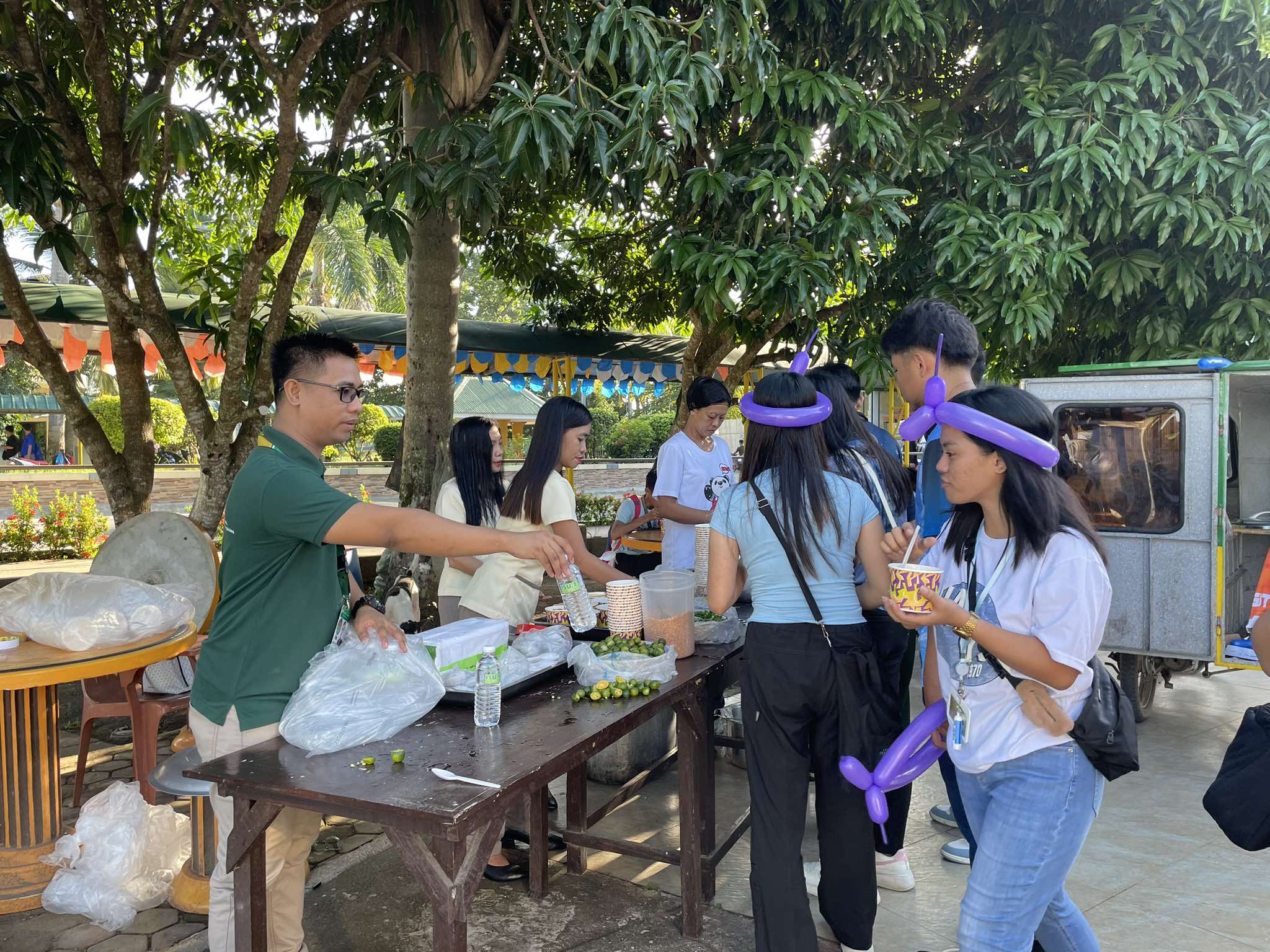
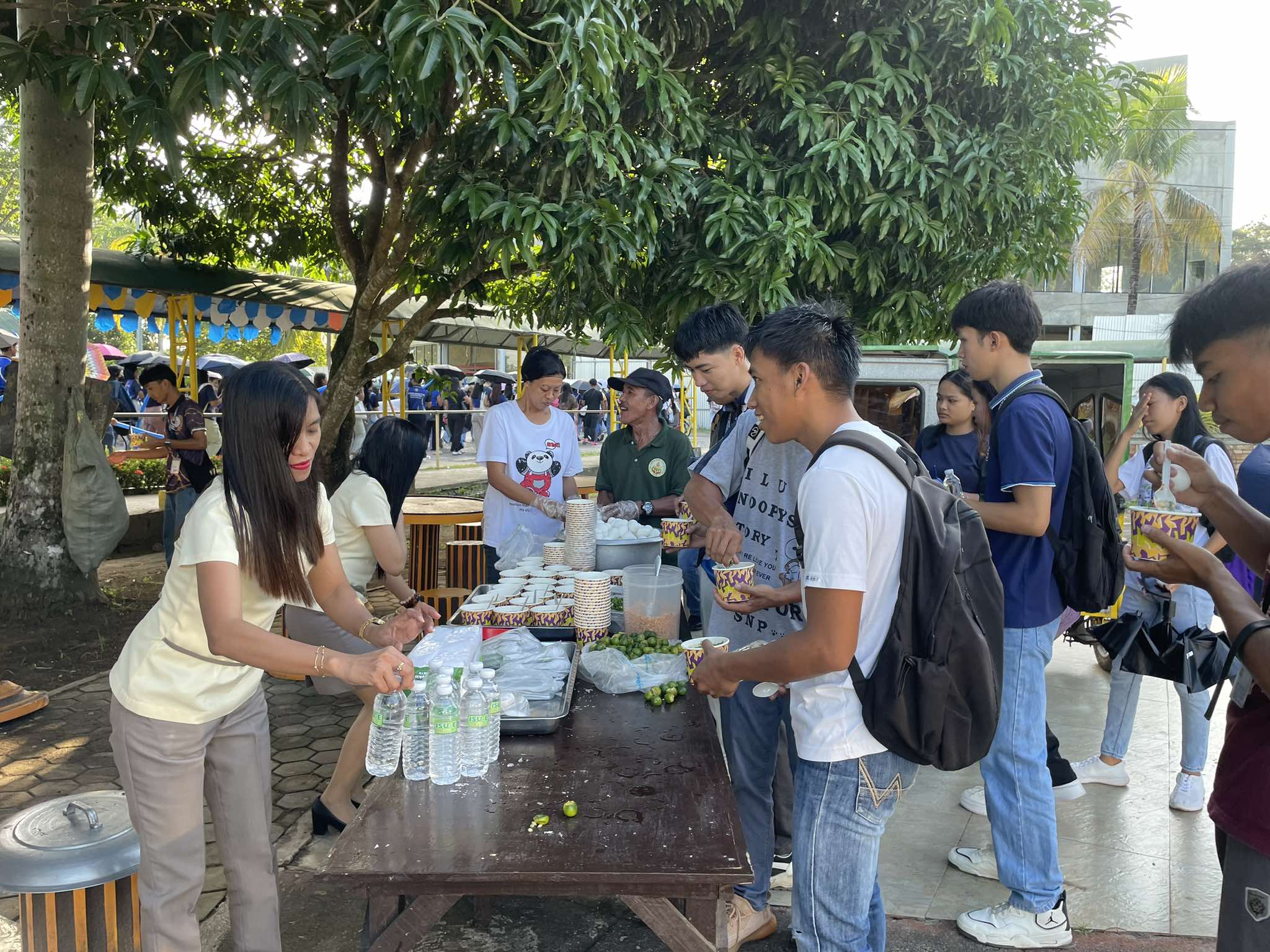
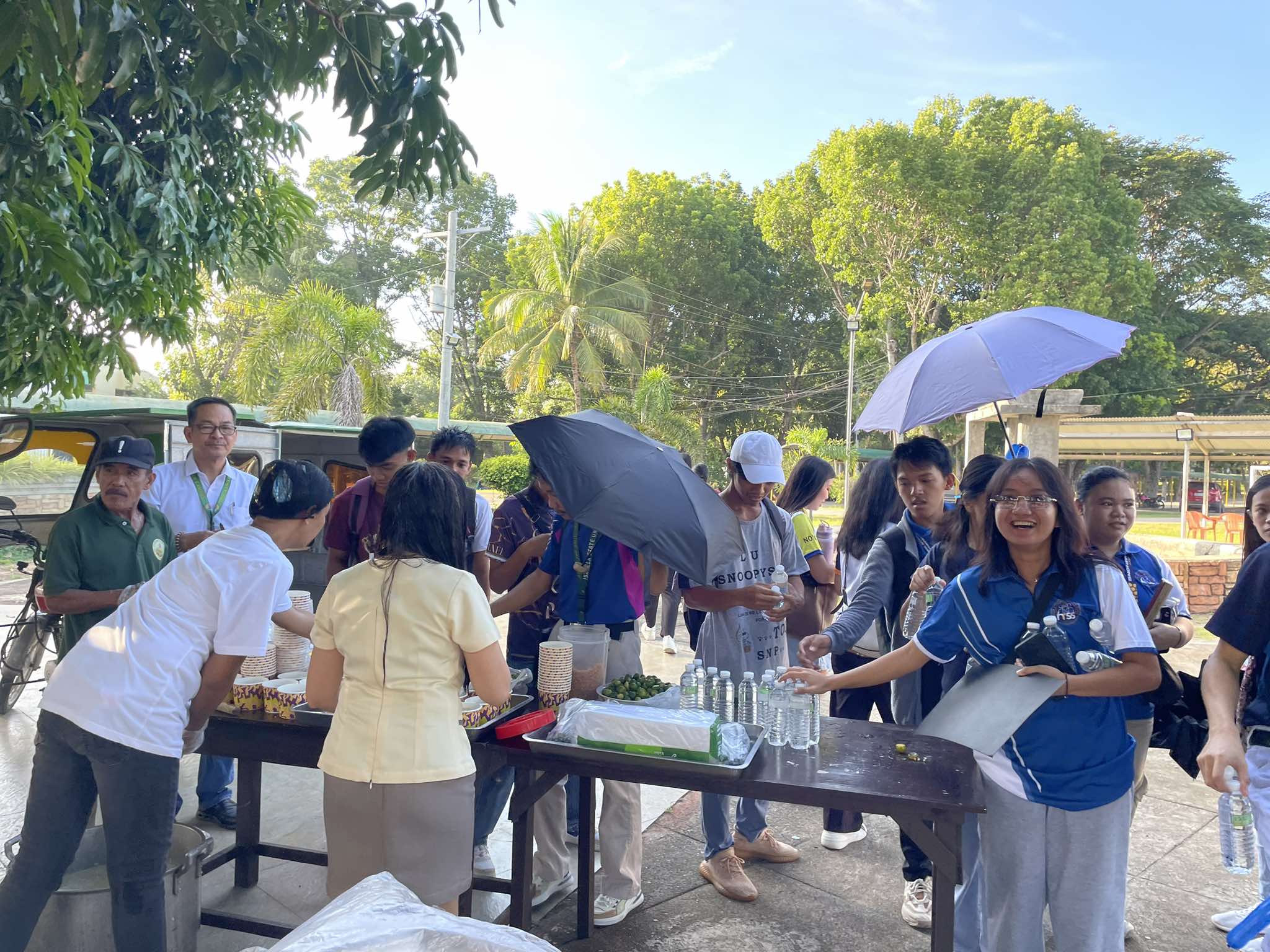
As the academic year 2024-2025 begins, the Office of Student Affairs and Services (OSAS), in collaboration with the ISU Multi-Purpose Cooperative, warmly welcomes students with a special treat. Today, August 12, free lugaw is being served at the Students’ Plaza.
This initiative reflects the university’s ongoing commitment to championing the Sustainable Development Goals (SDGs), particularly SDG 1: No Poverty, SDG 2: Zero Hunger, SDG 3: Good Health and Well-Being, and SDG 4: Quality Education.
5.2 Free Coffee and Bread for ISUans
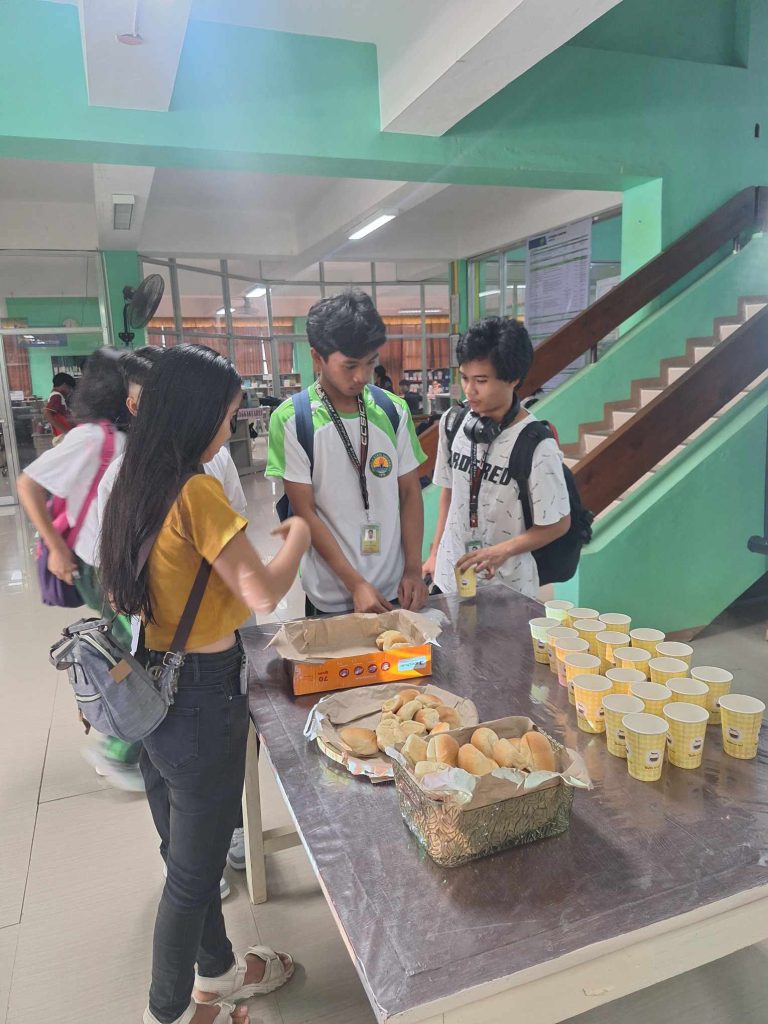
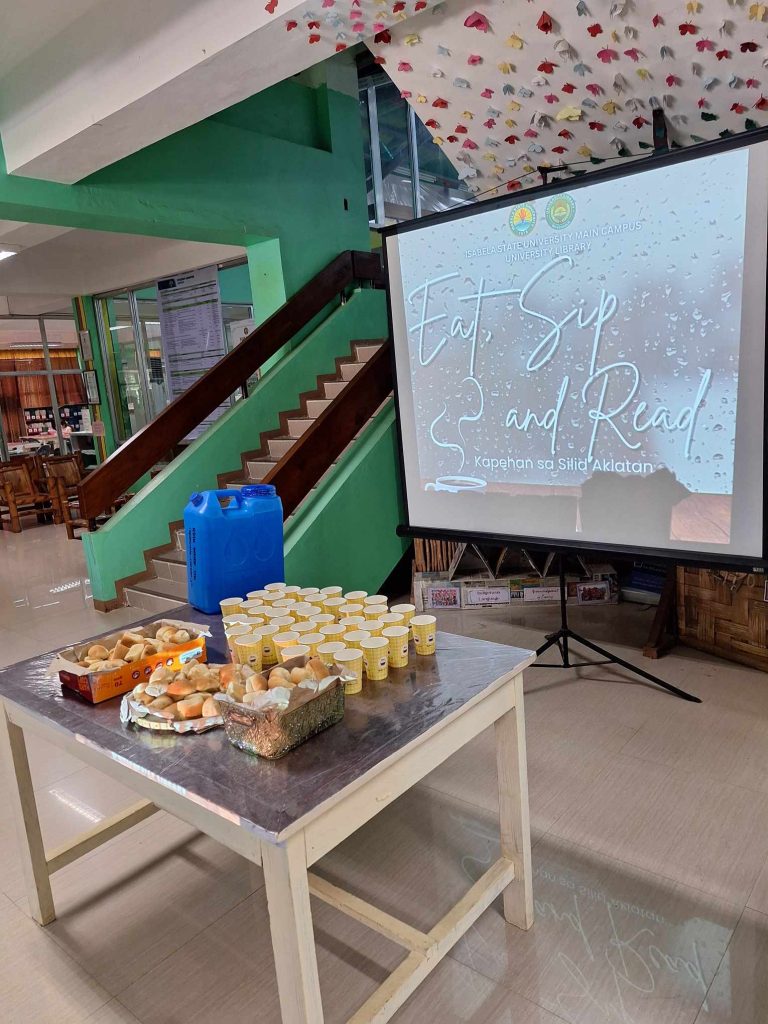
The Isabela State University (ISU) provides programs and initiatives that support students in completing their studies on time. One such effort is the “Eat, Sip, and Read” program of the University Library at ISU–Echague Campus, which offers free coffee and bread in a welcoming academic space. This initiative not only promotes the library as a hub for learning and relaxation but also helps ease students’ daily food expenses. By providing both nourishment and encouragement, the program sustains students in their academic journey, reducing financial strain that often hinders success. This modest yet meaningful intervention reflects ISU’s commitment to inclusivity and aligns with SDG 1 ensuring that all students, regardless of economic background, can thrive in an environment that nurtures learning, well-being, and achievement.
6. Free Internet Access
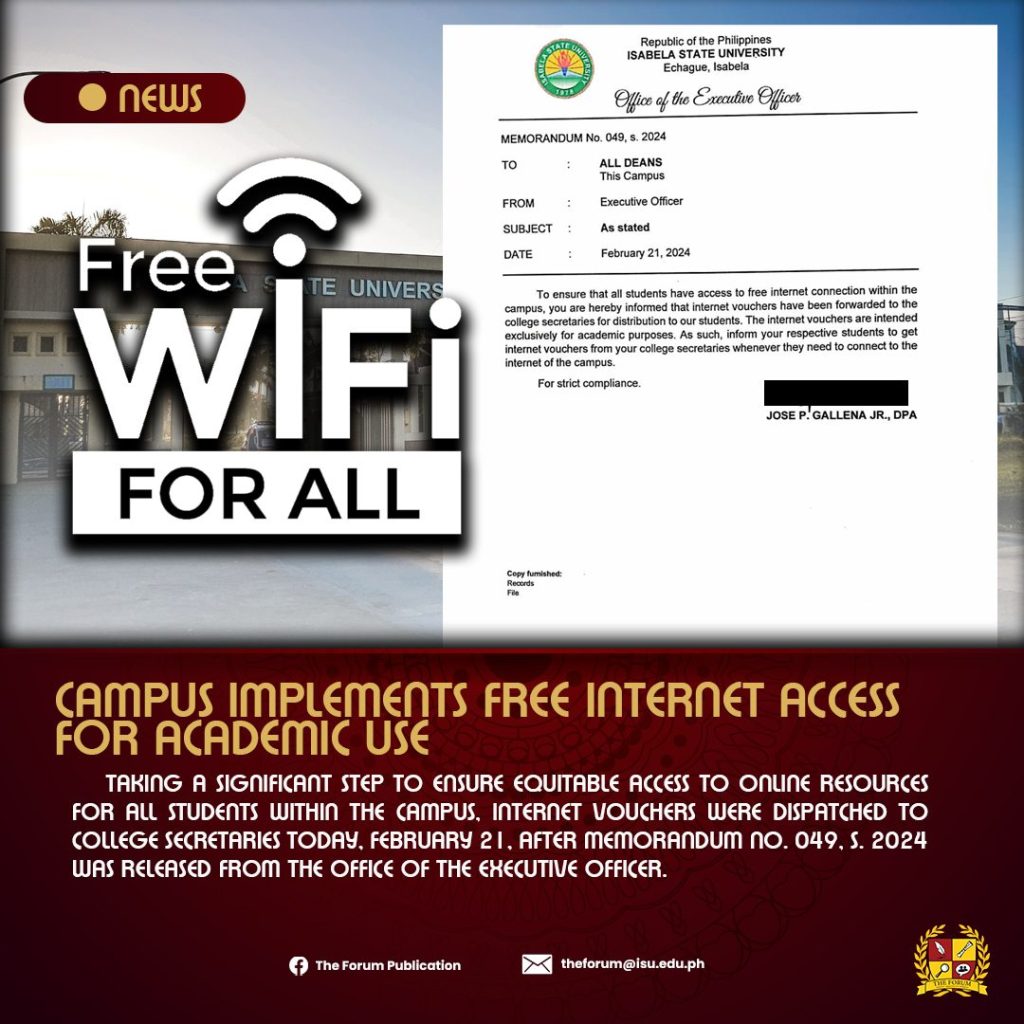
Taking a significant step toward equitable access to online resources, the ISU Echague has implemented free internet access for students, with vouchers dispatched to college secretaries on February 21, following the release of Memorandum No. 049, s. 2024 from the Office of the Executive Officer. These vouchers serve as gateways to the campus internet network, ensuring seamless connectivity for academic purposes. Students may avail themselves of these vouchers from their respective college secretaries whenever they need internet access on campus. This initiative reduced the financial burden of internet expenses on students, especially those from economically disadvantaged families. Free access to digital resources ensures that poverty does not hinder opportunities for academic success, thereby supporting social mobility and inclusive education.
7. Free Transportation
7.1 Libreng Sakay Program
The Isabela State University (ISU) continuously supports students in completing their studies on time by implementing programs that ease financial burdens. One notable initiative is the “Libreng Sakay Program” of the Quirinian Students’ Organization (QSO) of ISU Echague, a free transportation service that reduces daily travel expenses for students. Implemented in partnership with the Office of the Provincial Government of Quirino Province, the program safely transported students from various municipalities back to their homes, demonstrating QSO’s mission of accessible and inclusive service. This initiative significantly eases the struggles of students and families, particularly those from low-income backgrounds, by ensuring that financial constraints do not hinder access to education. More than free rides, the program reflects a shared commitment to equity.
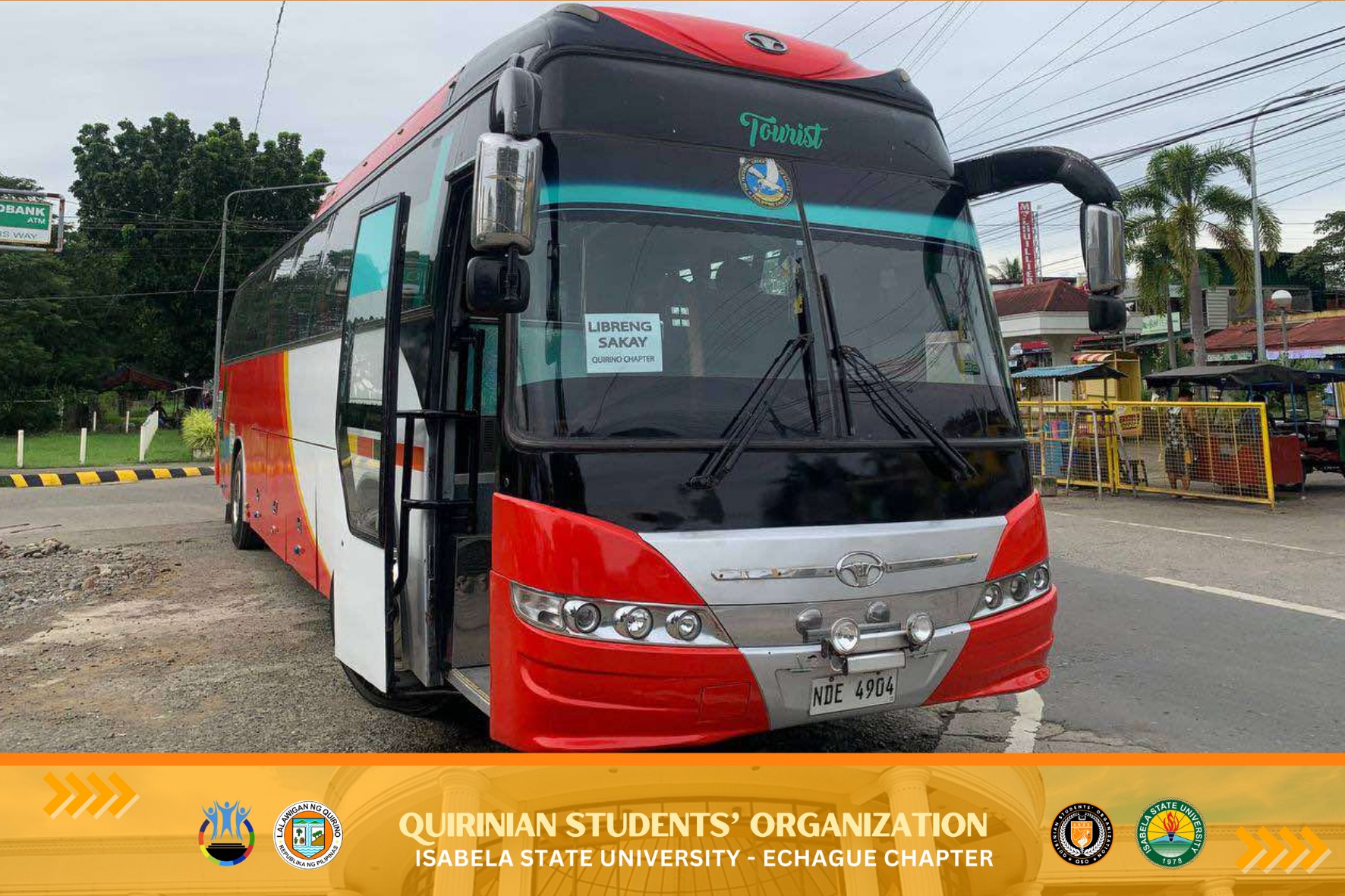
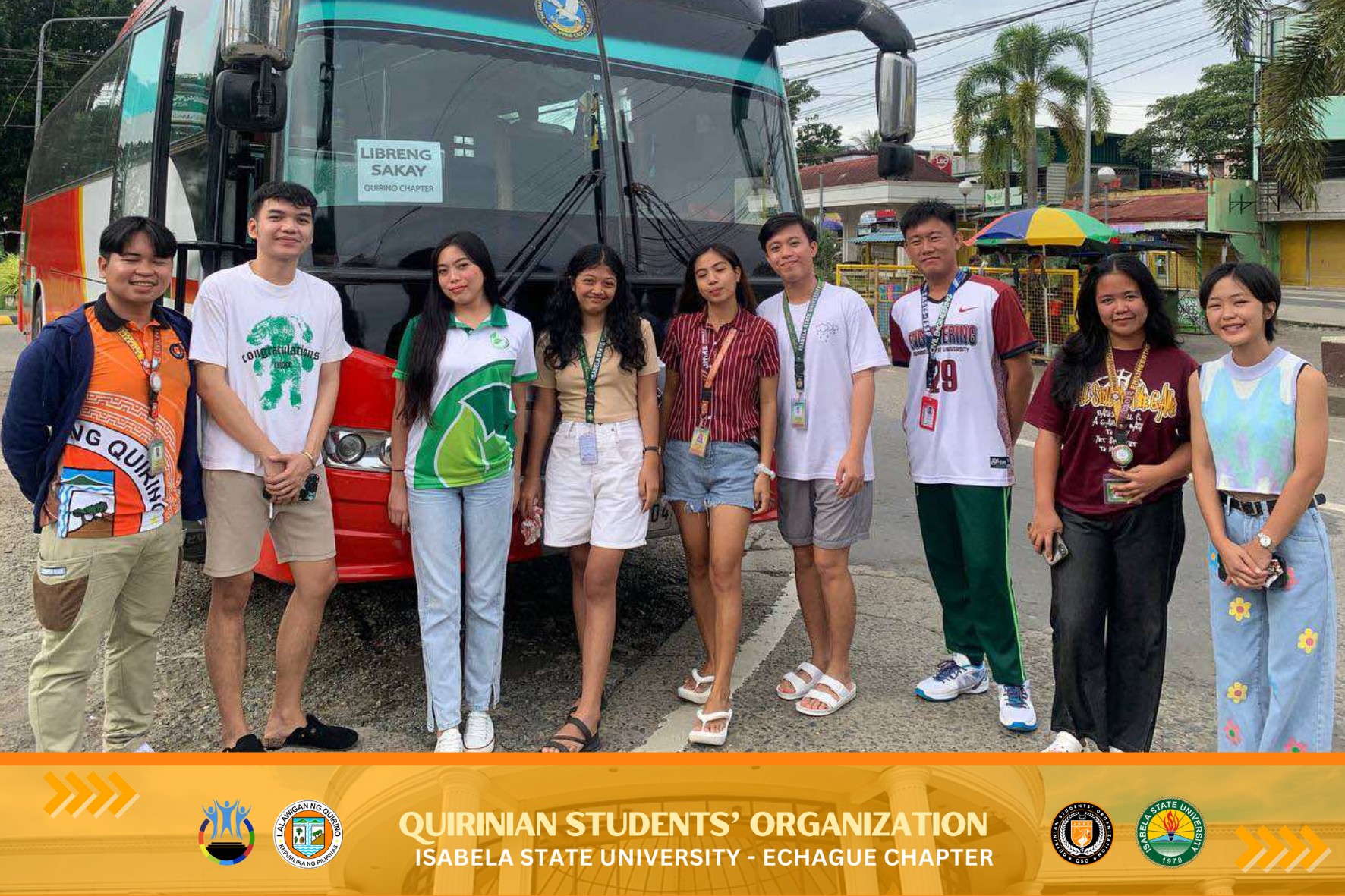
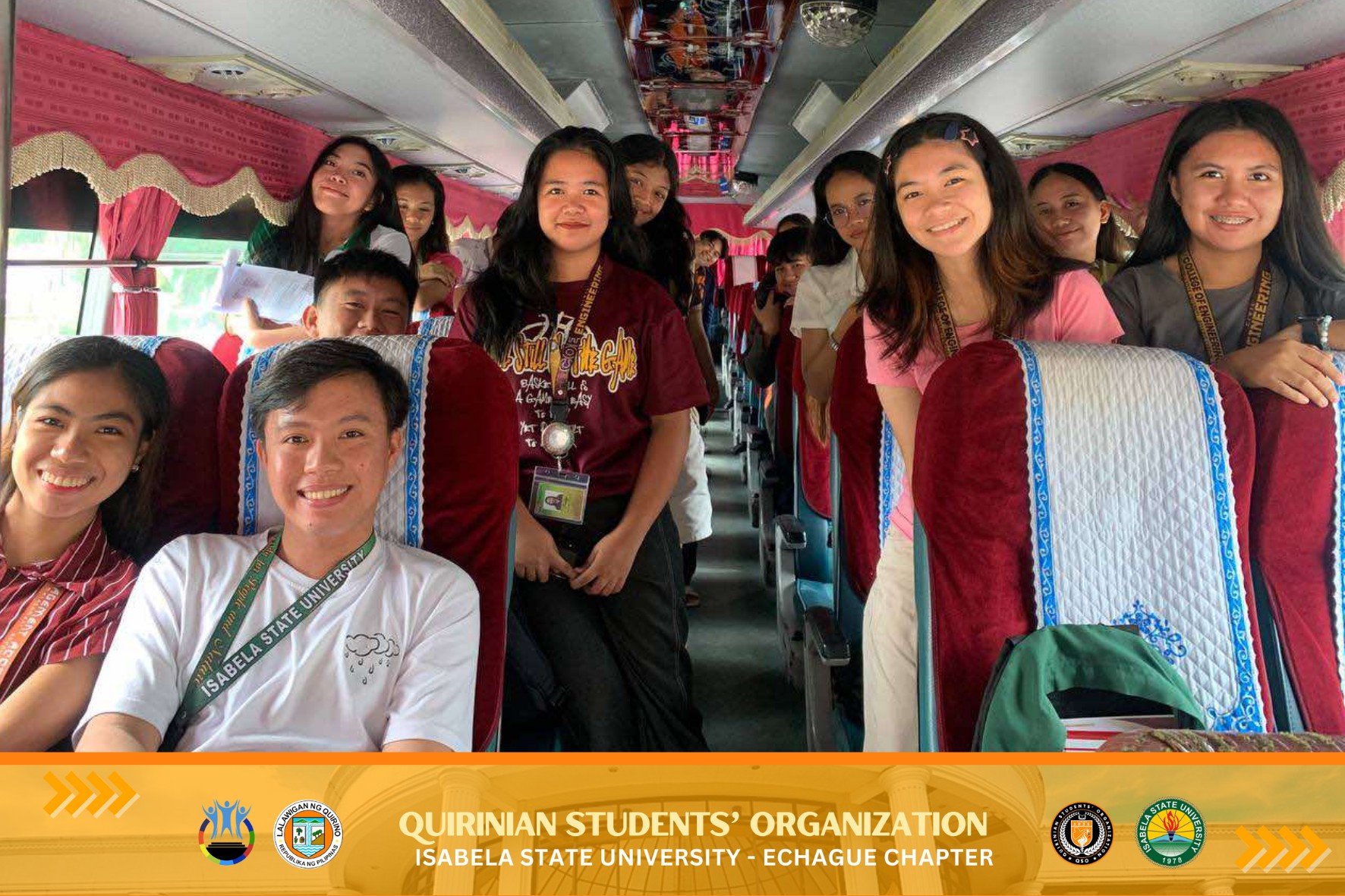
7.2 Free Transport Bikes
The free transport bikes for ISU students aim to reduce the impact of poverty by removing transportation expenses as a hindrance to their education. The transport bikes are available for use at designated bike stations near the campus’ main gate, colleges, and student dormitories, providing easily accessible transportation for students. The transportation bikes are expected to enhance the mobility and accessibility of the university community, while simultaneously reducing the carbon footprint associated with conventional modes of transportation.
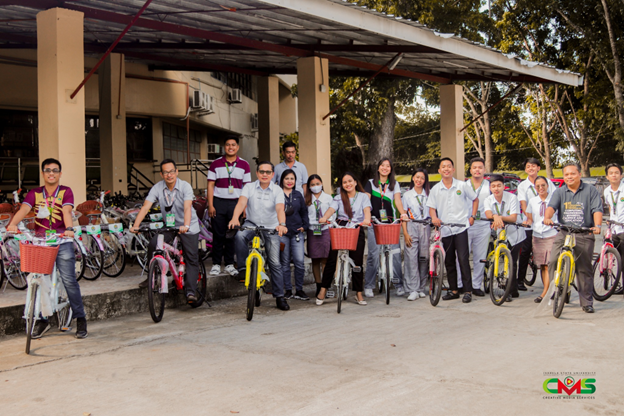
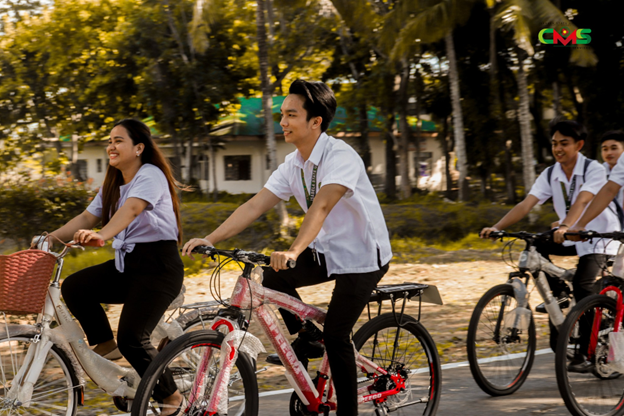
8. Free Legal Assistance
Through Board Resolution No. 60 series of 2022, the University established a Legal Aid Clinic. The general goal of the program is to legally empower local communities, especially the students from low-income families, by making justice more accessible to them while in the process continue to uphold the principles of social justice, rule of law, and humanity.
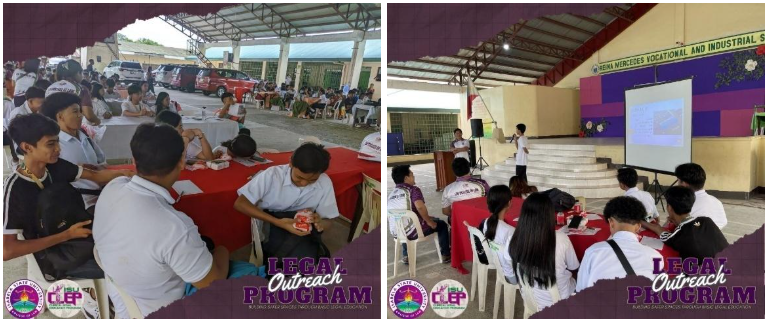
COMMUNITY ANTI-POVERTY PROGRAMS
Relationship with NGOs and government agencies and Conduct of Livelihood Programs to the Community
The University upholds a philosophy rooted in service, particularly for underserved, deprived, and marginalized communities. Guided by CHED Memorandum Order No. 20, series of 2011, the institution allocates 10% of its tuition fees to Extension Services, reaffirming its dedication to community engagement and development.
Through the General Appropriations Act (GAA) and Special Budget (SB) No. 164, the university earmarked ₱17,289,548.47 to strengthen these initiatives. This funding supports the rollout of startup assistance, mentorship programs, training workshops, and access to university facilities. Such comprehensive support not only promotes the creation of sustainable local enterprises but also advances long-term economic and social development—fully aligned with the university’s mission to uplift communities through education, innovation, and collaboration.
In 2024, a total of 131 extension programs were successfully completed, demonstrating the university’s active and continuing impact at the grassroots level.
Local start-up assistance
One significant initiative is the “TechnoBiz Go Negosyo: Capability Building and Upgrading on Catering Services and Community Outreach” of the College of Business and Management, ISU-Cauayan Campus. This program equips participants, especially women, with skills in catering services, business upgrading, and planning, while fostering collaboration and empowerment. Beyond promoting profitability, the initiative emphasizes inclusivity and social responsibility by encouraging the provision of budget-friendly services that benefit the wider community. By helping participants generate sustainable income and reduce financial vulnerability.
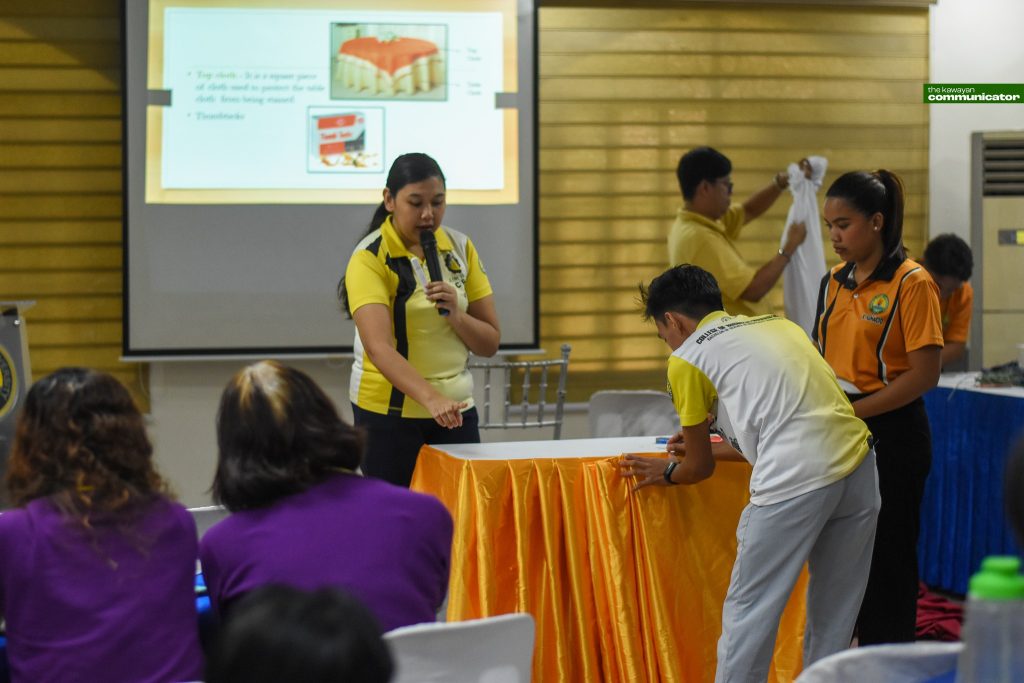
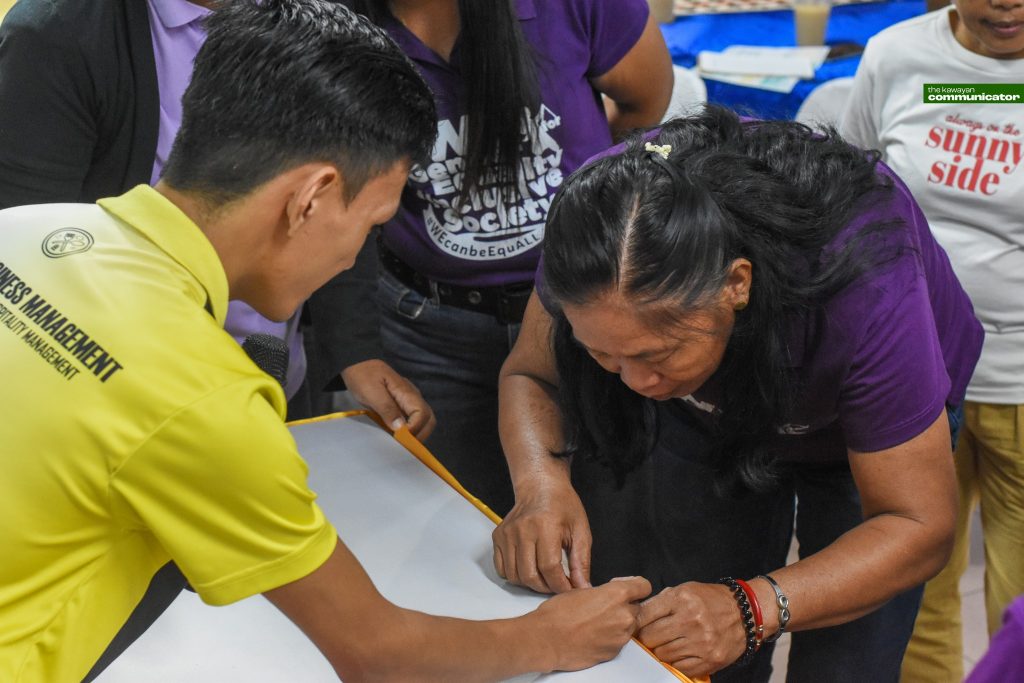
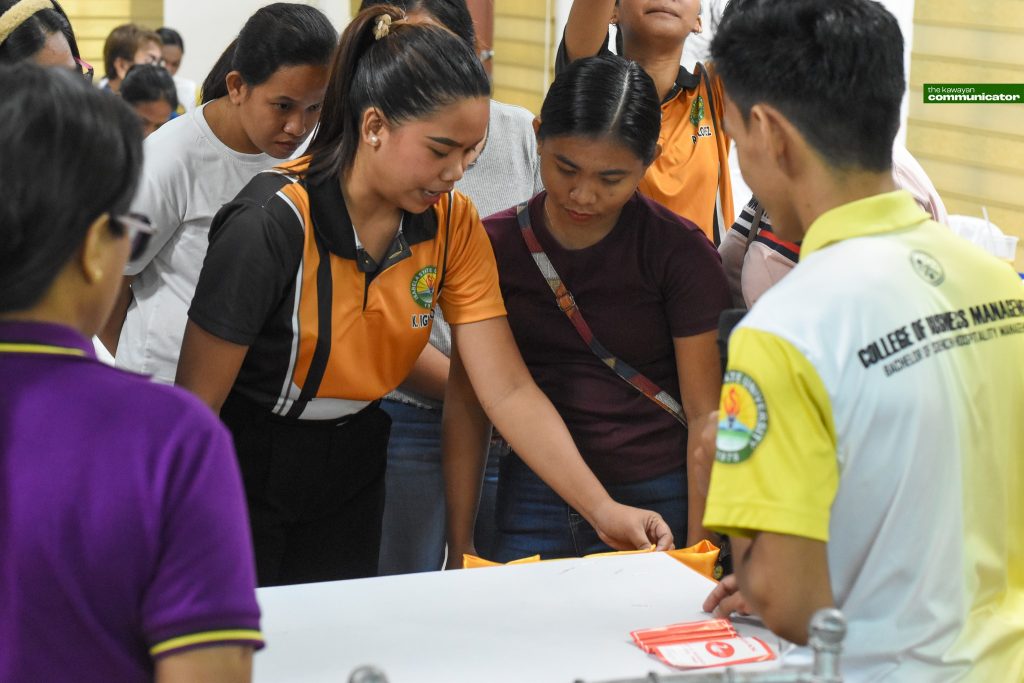
Local start-up financial assistance
The Isabela State University (ISU), through the ISU-Cagayan Valley Cacao Development Center (CVCDC), extended vital support to local cacao farmers, associations, and cooperatives by providing specialized training on cacao butter processing; a crucial step in producing high-quality cacao products that meet market demands. Participants, representing various cacao associations in the province, gained in-depth knowledge on maximizing cacao butter by-products, addressing issues of underutilization while promoting sustainability and profitability within the cacao industry. This initiative helps the farmers and cooperatives with the skills and knowledge needed to increase income, reduce economic vulnerability, and create sustainable livelihoods through value-added cacao products. By strengthening local capacity, ISU empowers the cacao community of Apayao and other cooperatives, paving the way for inclusive economic development, improved market competitiveness, and poverty reduction within the province.
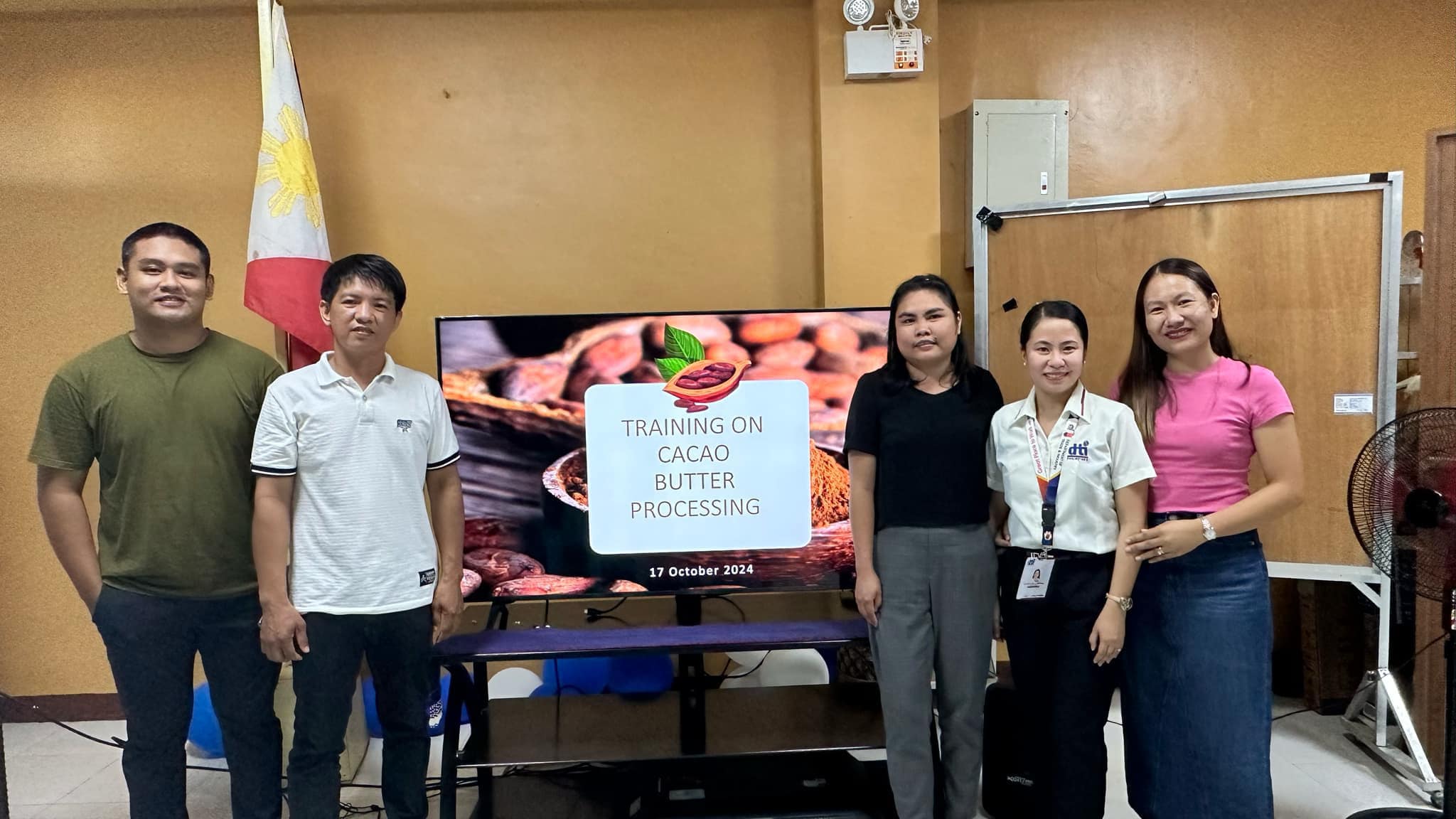
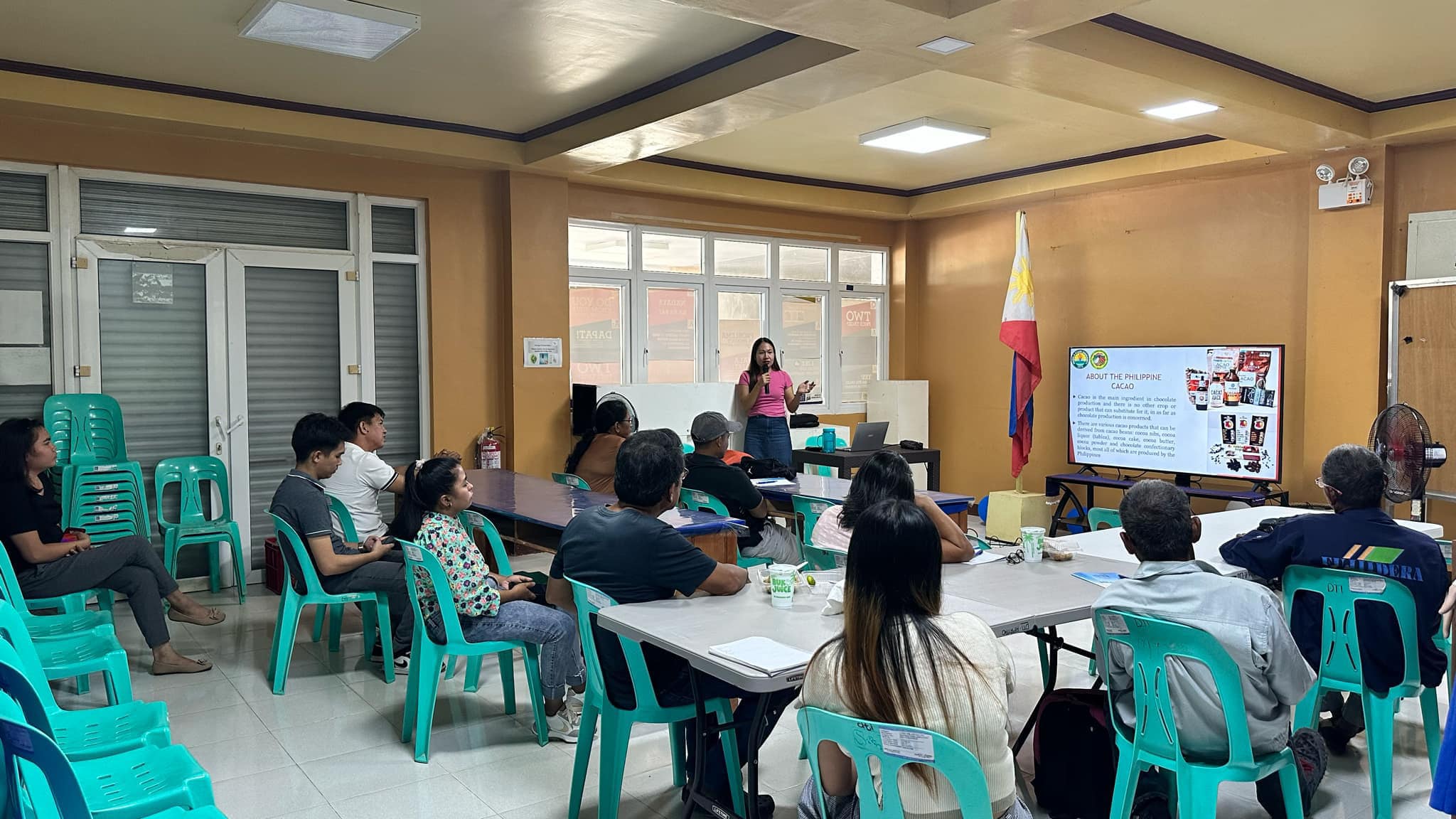
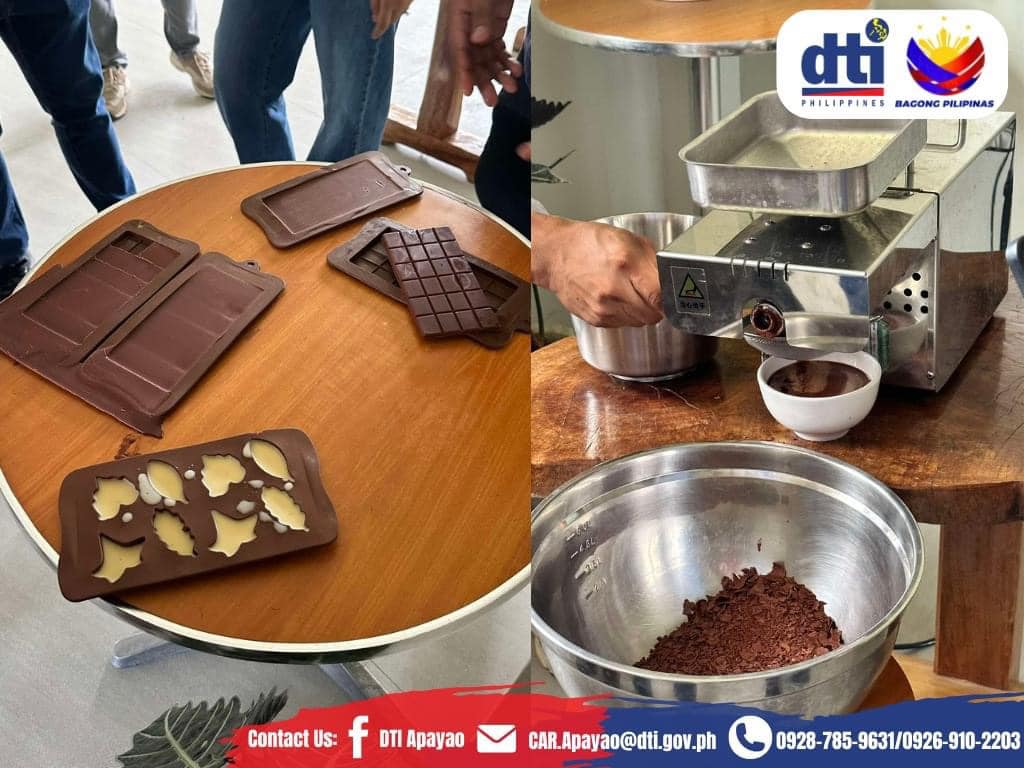
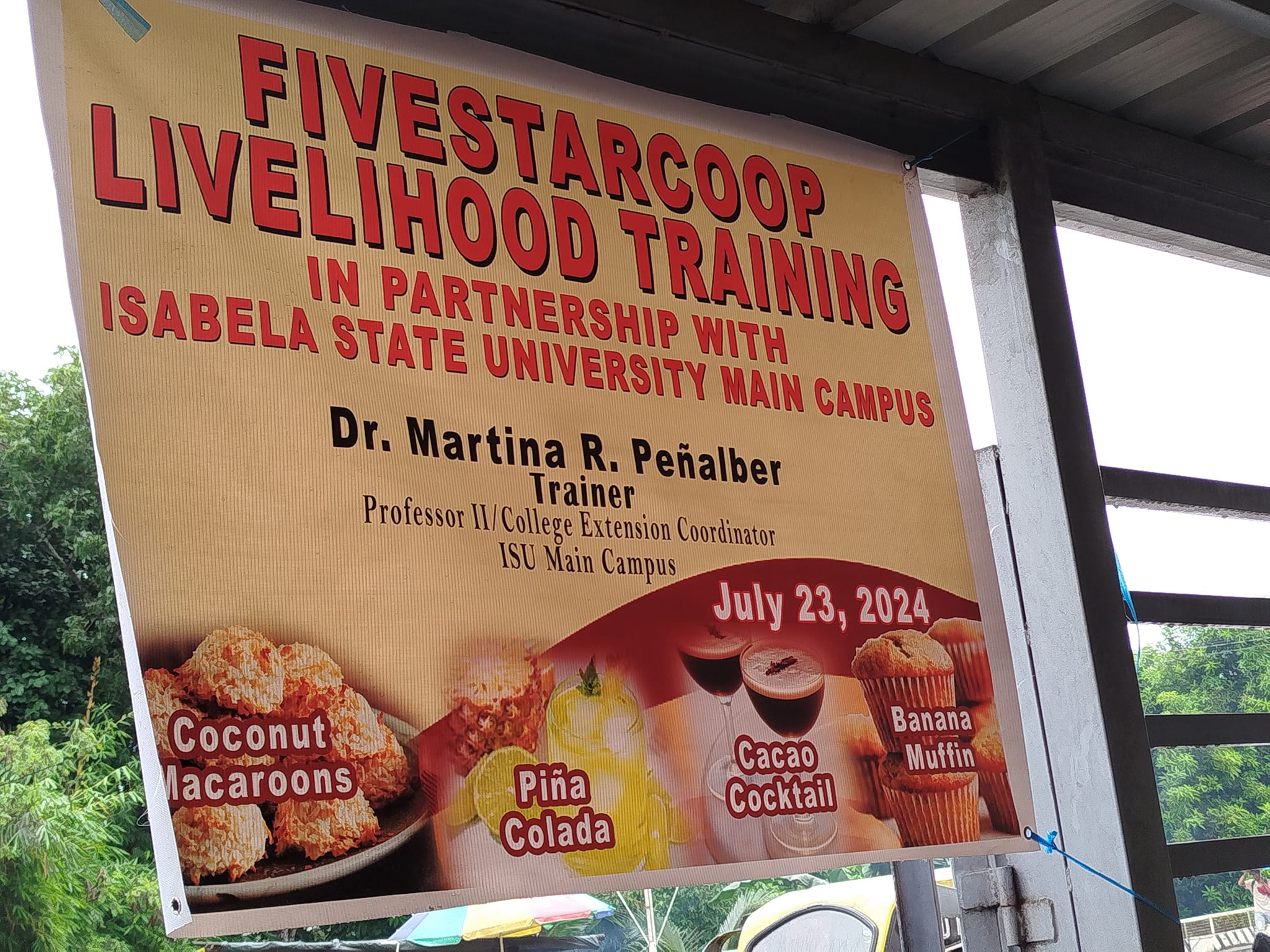
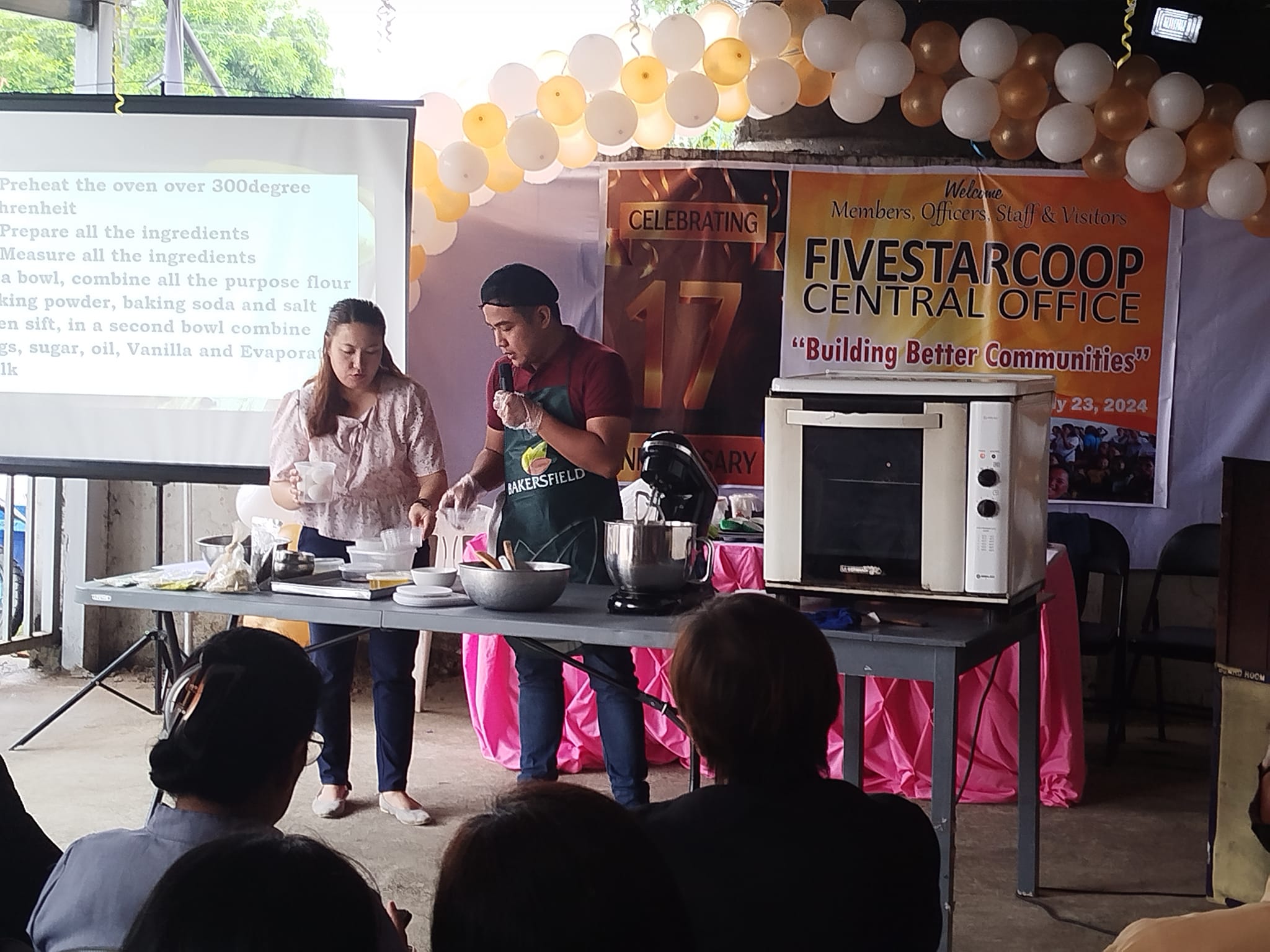
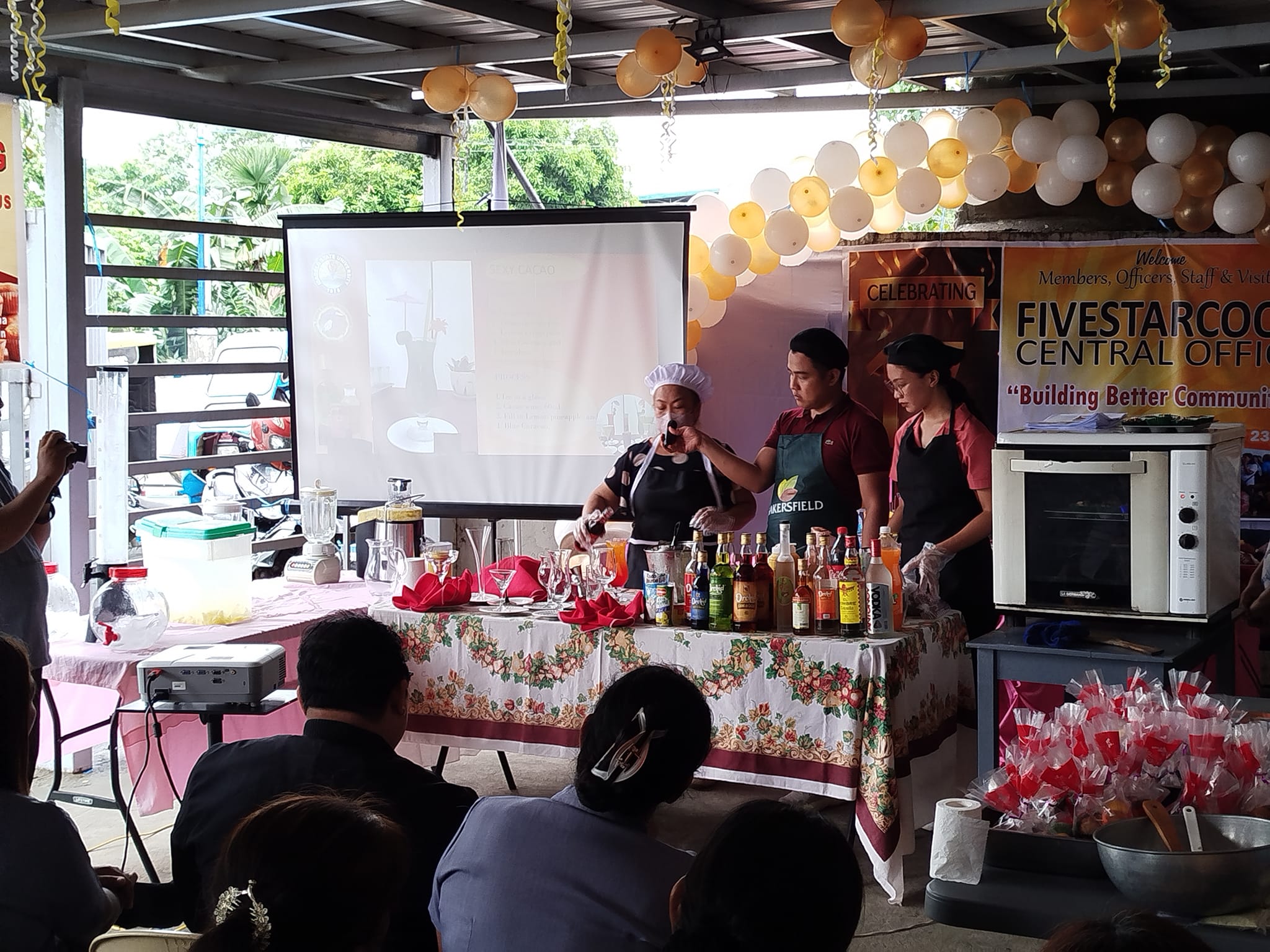
Programmes for services access
Isabela State University (ISU), through the Institute of Agricultural Technology (IAT) of ISU Cauayan Campus, extends support to rural communities in Barangay Burgos, Naguilian via the program “Empowering Communities: Agricultural Innovation for Sustainable Growth: Pato-Manok, Gulay, Maka-Kabuteng Pangkabuhayan Program for the Province of Isabela.” This initiative provides farmers and households with accessible training in modern agricultural technologies such as integrated duck-chicken production, vegetable cultivation, and mushroom farming. Through continuous learning and guidance will further improve their lives, ISU empowers rural families to enhance food security, generate additional income, and adopt sustainable practices.
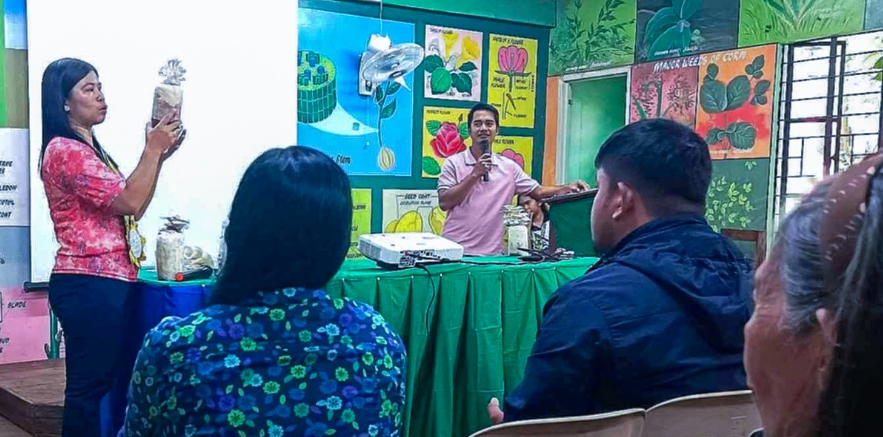
List of Extension Programs
| Mandated / Priority Program/s | Extension Programs | Start Date | End Date | |
|---|---|---|---|---|
| Angadanan Campus | ||||
| Bachelor of Science in Industrial Technology; | 1. | Barangay Electrician Empowerment through Housewiring Inspection as Vital for Electrical System (BEE-HIVES) | 01-09-2024 | 12-09-2024 |
| Bachelor of Science in Information Technology | 2. | Empowerment through TIME-CATCH: An Enhanced Attendance Monitoring System | 01-19-2024 | 10-02-2024 |
| Bachelor of Science in Criminology | 3. | CRIM DEFENDER: Collective and Radical Instruction and Mentoring in molding DEFENDER in the Municipality of Angadanan, Isabela | 03-08-2024 | 12-09-2024 |
| Bachelor of Science in Industrial Technology; | 4 | Program for Less Served Individuals (P.L.S.I): A Technical – Vocational Skills Extension Program of the Polytechnic School of ISU - Angadanan. | 01-09-2024 | 12-09-2024 |
| Bachelor of Science in Industrial Technology; | 5 | Technology Transfer of Installation and Maintenance of Economically Viable and Upgradable Hybrid Photovoltaic System | 11-27-2024 | Dec-08-2024 |
| Bachelor in Secondary Education | 6 | Gender Responsive Actions for Transformation (MISSION : GREAT) | 01-09-2024 | 12-09-2024 |
| Bachelor in Secondary Education | 7 | Capacity Building of the Adopted Schools for Angadanan, Isabela | ||
| Bachelor in Secondary Education | 8 | Project REACH - Revitalizing Educators of Angadanan by Capacitating with a Heart | 01-09-2024 | 12-09-2024 |
| Bachelor in Secondary Education | 9 | Proyektong KPOP: Paglinang ng Kasanayan pang Oral at Pagsasalita | 03-07-2024 | 12-09-2024 |
| Bachelor in Secondary Education | 10 | Project LITERACY - Learning Innovative Techniques for Enjoyable Reading Activities and Computation for the Youth | 03-22-2024 | 12-09-2024 |
| Bachelor of Science in hospitality Management | 11 | Bamboo Shoot Noodles: A Sustainable Livelihood and Training Program for the Bamboo Growers Association of Angadanan | 07-24-2024 | 12-09-2024 |
| Bachelot of Technical and Vocational Livelihood Education | 12 | Fruit Wine Making of ISU-Angadanan Campus. | 01-09-2024 | 12-09-2024 |
| Bachelor of Science in Agriculture; | 13 | Food Safety and Livelihood Thru Smart and Urban Vegetable Gardening | 01-09-2024 | 12-09-2024 |
| Cabagan Campus | ||||
| Bachelor of Science in Computer Science; Bachelor of Science in Computer Engineering; Bachelor of Science in Education | 14 | ISU-SP Expanded Overseas Student Innovation Program: The ISU-SP Learning Express Program | 12-27-2023 | 06-30-2024 |
| Bachelor of Science in Computer Science; Bachelor of Science in Computer Engineering; Bachelor of Science in Information Technology | 15 | Inclusive Business and Humanitarian Technology Innovation: Facilitation for Technology and Business Development for the Madaddalla Farmers Marketing Cooperative, Palanan Sabutan Weavers and Roxas West Ladies Tomato Industry | 02-09-2023 | 02-08-2025 |
| Bachelor of Science in Agriculture; Bachelor of Science in Development Communication | 16 | Scaling – Up PAYOGA’s Market Presence: Participatory Capacity Enhancement on 4-in-1 Juice and Banana Chips | 05-02-2023 | 08-31-2024 |
| Diploma in Agricultural Technology | 17 | ElectroMastery: Advancing Electrical Skills through Training and Assessment of Electrical Installation and Maintenance NC II | January 2024 | On-going |
| Bachelor of Agricultural Technology | 18 | Yaman ng Kaisipan Sagana ng Kabukiran: Empowering Farmers on Production of High-Quality Inbred Rice, Seed Certification and Farm Mechanization | January 2024 | On-going |
| Bachelor of Agricultural Technology | 19 | Optimizing Rice Production: Comprehensive Training on Nutrient and Pest Management | January 2024 | On-going |
| Bachelor of Agricultural Technology | 20 | Promotion of Sustainable Rice Production Systems in Rain-fed Areas thru Participatory Technology Demonstration in Sta. Maria, Tumauini and Cabagan, Isabela | January 2024 | On-going |
| Bachelor of Science in Criminology; Bachelor of Science in LEA | 21 | Traffic Safety Education Program Among Senior High School Students in 1st District of Isabela | January 2024 | October 2024 |
| Bachelor of Science in Information Technology | 22 | Click & Serve: Building Smarter Government with Digital Skills | January 2024 | December 2024 |
| Bachelor of Science in Information Technology | 23 | ASPIRE: Academic Support and Partnerships for Improved Resources in Education | January 2024 | December 2024 |
| Bachelor of Science in Information Technology | 24 | Project RED: Redesigning Workflow towards a Sustainable and Efficient School Ecosystem – Phase 2 | January 2024 | December 2024 |
| Bachelor of Science in Information Technology | 25 | Advancing Educational Technology (AidTech): Initiatives for ICT Lab Networking, Real-time Monitoring and Knowledge Sharing | January 2024 | On-going |
| Bachelor of Science in Computer Engineering | 26 | WATCH U SEE: Strengthening Communities through CCTV Training in Different Municipalities of Northern Isabela | January 2024 | On-going |
| Bachelor of Science in Computer Engineering | 27 | Sustainable Solutions: Fabrication and Training on Mobile Solar-Powered Charging Stations with Street Light for Disaster Resilience and Rural Development | January 2024 | November 2024 |
| Bachelor of Science in Development Communication; Bachelor of Arts in Communication | 28 | SOS to INSPIRE: A Communication-Centered Framework for Mobilizing People’s Participation In Managing Community Conserved Areas (CCAs) in Northeast Luzon | January 2021 | July 2024 |
| Bachelor of Science in Development Communication; Bachelor of Arts in Communication | 29 | TINDAHAN NET-IN: Expanding Market Accessibility through Digitally-Assisted Marketing for Economic Sustainability | January 2023 | On-going |
| Bachelor of Science in Biology | 30 | “Kabutihang Kabuhayan para sa Kababaihan (KKK)”: Tissue Culture Technology for Mushroom Production and Mushroom By Products (Phase 2) | January 2024 | On-going |
| Bachelor of Science in Forestry; Bachelor of Science in Environmental Science | 31 | S&T Community-Based Gmelina Farms in the Province of Isabela | August 2019 | October 2024 |
| Bachelor of Science in Forestry; Bachelor of Science in Environmental Science | 32 | Promoting Environmental Governance through Knowledge, Networking and Learning Experience (KNLE) for LGU Department Heads | July 08, 2024 | July 12, 2024 |
| Bachelor of Science in Forestry; Bachelor of Science in Environmental Science | 33 | Building Capacities and Enhancing Resilience through CDRA Training-workshop for LGU Palanan, Isabela | October 03, 2024 | October 05, 2024 |
| Bachelor of Science in Forestry; Bachelor of Science in Environmental Science | 34 | Technical Provision on the Enhanced Local Climate Change Action Plan (eLCCAP) to PLGUs and MLGUs for 2024 | January 2023 | December 2024 |
| Bachelor of Physical Education | 35 | PROJECT BAYLES (Balik Awra Y para ta LGU-Cabagan Employees ira anna Senior Citizen) | January 2024 | On-going |
| Bachelor of Science in Elementary Education | 36 | Advocacy for Literacy and Numeracy Skills | January 2024 | On-going |
| Bachelor of Science in Secondary Education | 37 | Project Stitch 2.0:Empowering Vulnerable Women | January 2024 | On-going |
| Bachelor of Science in Hotel and Restaurant Management; Bachelor of Science in Tourism | 38 | Access to Employment Success (AES): Japanese Language and Culture Training for N5 and N4 Level | May 2023 | May 2024 |
| Cauayan Campus | ||||
| Bachelor of Science in Hospitality Management | 39 | Project Kankanen Native Rice Delicacy Producers and Vendors Enhancement Program and Business Growth | 01-01-2024 | 12-31-2024 |
| Bachelor of Secondary Education | 40 | Cauayan Licensure Project | 01-01-2024 | 12-31-2024 |
| Bachelor of Arts in English Language Studies | 41 | Developing Childrens Critical Thinking Skills | 01-01-2024 | 12-31-2024 |
| Bachelor of Science in Hospitality Management | 42 | Training on School Menu Planner SMP Plus Tool for Home Grown School Feeding | 01-01-2024 | 12-31-2024 |
| Bachelor of Science in Entrepreneurship | 43 | Entrepreneurship Training for sustainable Livelihood in Paracelis Mountain Province | 01-01-2024 | 12-31-2024 |
| Bachelor of Science in Criminology | 44 | Competency in Industrial Security Management (CIS-MAN) | 01-01-2024 | 12-31-2024 |
| Bachelor of Science in Legal Management | 45 | Tulong dunong sa kawaning Gobyerno | 01-01-2024 | 12-31-2024 |
| Bachelor of Science in Industrial Technology | 46 | Swak sa ToolBox Project | 01-01-2024 | 12-31-2024 |
| Bachelor of Agricultural Technology | 47 | Economic Empowerment Through Agriculture | 01-01-2024 | 12-31-2024 |
| Bachelor of Science in Criminology | 48 | Strengthening Parole and Probation | 01-01-2024 | 12-31-2024 |
| Bachelor of Science in Entrepreneurship | 49 | TechnoBiz Go Negosyo | 01-01-2024 | 12-31-2024 |
| Bachelor of Science in Criminology | 50 | Public Order and law Intervention and Community Empowerment POLICE | 01-01-2024 | 12-31-2024 |
| Bachelor of Science in Entrepreneurship | 51 | TETRA: Synthesizing Technology and Traditions for MSME Development and Commercialization | Jan-01-2024 | 12-31-2024 |
| Bachelor of Science in Entrepreneurship | 52 | 3Ms (Mindset, Money and Market) Program | Jan-01-2024 | 12-31-2024 |
| Bachelor of Elementary Education/ Bachelor of Science in Criminology | 53 | Acts of Kindness Project Community Outreach Program | Jan-01-2024 | 12-31-2024 |
| Bachelor of Elementary Education/Bachelor of Science in Physical Education | 54 | Cauayan Licensure Triumph | Jan-01-2024 | 12-31-2024 |
| Bachelor of Arts in English Language Studies | 55 | Project Injecs | Jan-01-2024 | 12-31-2024 |
| Bachelor of Elementary Education/Bachelor of Science in Physical Education | 56 | BAYLE de Kultura | Jan-01-2024 | 12-31-2024 |
| Bachelor of Agricultural Technology | 57 | Swine Multiplier Project | Jan-01-2024 | 12-31-2024 |
| Bachelor of Secondary Education | 58 | Dalubhasaan | Jan-01-2024 | 12-31-2024 |
| Bachelor of Science in Entrepreneurship | 59 | Project EMERGE: Empowerment Through Mindset, Education, Reseource,and Growth | Jan-01-2024 | 12-31-2024 |
| Bachelor of Science in Business Administration | 60 | Bookeeping and Financial Literacy | Jan-01-2024 | 12-31-2024 |
| Bachelor of Science in Business Administration/ Bachelor of Science in Accounting information System | 61 | Management Strategies for Micro Retail Business Owners | Jan-01-2024 | 12-31-2024 |
| Echague (Main) Campus | ||||
| Institute of Fisheries | 62 | Enhancing Women Capability on Smoked Tilapia Production for Food Security and Resiliency in BIDANI Communities | January 2024 | December 2024 |
| School of Veterinary Medicine | 63 | Extending Research Results for Fasciolosis Control in San Agustin Isabela | January 2024 | December 2024 |
| School of Veterinary Medicine | 64 | Reinforcements for Successful Livestock and Poultry Production in Backyard Raisers | January 2024 | December 2024 |
| School of Veterinary Medicine | 65 | KAPoN (Imprint Knowledge and Awareness of Public on Neutering of free-roaming dogs); a regimen for the population control and rabies prevention. | January 2024 | December 2024 |
| College of Medicine | 66 | Kalusugan and Nutrisyong Sapat, Kasama Lahat: Health Promotion and Disease Prevention in BIDANI Communities | January 2024 | December 2024 |
| College of Engineering | 67 | Building Capacity and Empowering a Partner Agency to become a Regional Water Center for Sustainable Water Resources Management | January 2024 | December 2024 |
| College of Business, Accountancy and Public Administration | 68 | Project BEAT-Bridging Entrpreneurship Education and Tech Transfer | January 2024 | December 2024 |
| College of Business, Accountancy and Public Administration | 69 | Capacity Building Program for a Community-Based Cooperative-Monica Ipil Savings and Credit Cooperative (MISACRECO) | January 2024 | December 2024 |
| College of Business, Accountancy and Public Administration | 70 | STEP UP- Skills and Training Enhancement Program: Unveiling their Potential | January 2024 | December 2024 |
| College of Business, Accountancy and Public Administration | 71 | Mentorship Progra for Technlogy Business Incubatees: Towards Sustainability and Long Term Viability | January 2024 | December 2024 |
| College of Computing Studies, Information Communication Technology | 72 | Empowering Northeastern College Faculty Extensionists Towards Engagement in Extension Projects: Conceptualizing, Writing, and Packaging | January 2024 | December 2024 |
| College of Computing Studies, Information Communication Technology | 73 | Transforming the Research Competence of Private HEIs and Tech-voc Schools Through Research Writing, Presentation, and Publication Towards Sustainable Research and development | January 2024 | December 2024 |
| College of Computing Studies, Information Communication Technology | 74 | AgroInformatics Solution: A FAR-UVC Pulse Treatment of Cassava Diseases, Classification, Geo-Mapping, and Monitoring System Transforming the Lives of Cassava Farmers | January 2024 | December 2024 |
| College of Computing Studies, Information Communication Technology | 75 | Empowering the Barangay through the Utilization of the Barangay management Information System (BMIS): A Tools for Community Development Planning | January 2024 | December 2024 |
| College of Computing Studies, Information Communication Technology | 76 | Project REEL 2.0 | January 2024 | December 2024 |
| College of Computing Studies, Information Communication Technology | 77 | SundaLook Project: Strengthening Soldier Recruitment Process through Implementation of the 5ID-ROAMS: Fifth Infantry Division Recruitment Office Application and Management | January 2024 | December 2024 |
| College of Arts and Sciences | 78 | YOU LEAD-YOU LEArn, Accept and develop: An Extension Project on the Development of Information, Education and Communication (IEC) Material | January 2024 | December 2024 |
| College of Arts and Sciences | 79 | Towards the Establishment of LGU Center for Yogad Studies: Exploration on Yogad Language & Literature | January 2024 | December 2024 |
| College of Arts and Sciences | 80 | Establishment of a Mental Health Propgram for Adopted BIDANI Barangay Officials and 5th ID Phil Army | January 2024 | December 2024 |
| College of Agriculture | 81 | Development of Sustainable Livestock-Based Rural Enterprises in Cagayan Valley: A CHED-ISU-LGU-Industry Partnership in Technology Commercialization and Entrepreneurship Development | August 2021 | December 2024 |
| College of Agriculture | 82 | A Food Security and Sustainability Program | January 2024 | December 2024 |
| College of Agriculture | 83 | Training on DOST-PCAARRD-ISU-Agri Aqua Technology Business Incubation Program Services | January 2024 | December 2024 |
| College of Nursing | 84 | Barangay Integrated Development Approach for Nutrition Improvement | January 2024 | December 2024 |
| College of Education | 85 | Write here, Right Now! Trainer and Students’ Training on Campus Journalism | January 2024 | December 2024 |
| College of Education | 86 | Project GALING Gearing up towards Advancement of Lifelong Learning Skills through Inclusive Literacy Training on Numeracy, Scientific Competencies, and Good Reading Skills | January 2024 | December 2024 |
| College of Education | 87 | Project CARE (Capacitating Community Paretnership through Active Research Writing and Statistical Analysis Engagement) | January 2024 | December 2024 |
| College of Education | 88 | ISU BIDANI-PNEA Phase II: A Multi-Faceted Strategy in Empowering Communities through Fortification of Product Development, Livelihood, and Proper Nutrition | January 2024 | December 2024 |
| College of Education | 89 | Participatory Nutrition Enhancement Approach (PNEA) Innovative Strategy: capability Building on BNC on Nutrition Education and Nutrition-in-Development Strategy using BIDANI PNEA Framework | January 2024 | December 2024 |
| College of Education | 90 | Nurture for the Future Capacitating Basic Education Teacher and Learners Towards Productive and Fuctional Citizens | January 2024 | December 2024 |
| College of Education | 91 | KABSAT Program Knowledge enhancement on Agripreneurship, Business Skills, and Technology Program - Capacity Initiative for Community Development | January 2024 | December 2024 |
| Ilagan Campus | ||||
| Bachelor of Secondary Education | 92 | “Kabataang Ilagueno Linangin para sa Organisadong Serbisyo at Pangkabuhayang Asensado” (KILOS PA): A Communication and Leadership Skills Training Program for the Sanguniang Kabataan of the City of Ilagan | 06/27/2024 | 10/05/2024 |
| Bachelor of Secondary Education | 93 | Project TSAA (Tea Session Acceptability and Appreciation) | 06/11/2024 | 06/11/2024 |
| Bachelor of Secondary Education | 94 | Records Management Training for Barangay Personnel of ISUI Adopted Barangays | 06/11/2024 | 06/11/2024 |
| Bachelor of Secondary Education | 95 | Hands-on Learning Enhancement Program(HELP) 3.0: A Community-Based Learning Intervention of Pre-Service Teachers for Elementary and High School Learners | 03/06/2024 | 12/04/2024 |
| Bachelor of Secondary Education | 96 | Idiskober: Honing Research Writing Skills for Senior High School | 10/10/2024 | 10/18/2024 |
| Psychology | 97 | Human Relation and Organizational Ability Enhancement Training for Barangay Personnel | 06/11/2024 | 06/11/2024 |
| Bachelor of Technical Vocational & Technology Education | 98 | PROJECT TESTRA PHASE 2 (Technology and Skills Transfer of Technical Vocational Teacher Education Program for the Adopted Barangay in the City of Ilagan) | 06/26/2024 | 06/26/2024 |
| Bachelor of Technical Vocational & Technology Education | 99 | Training Workshop on Domestic Appliances and Servicing | 06/13/2024 | 06/27/2024 |
| Electrical Engineering | 100 | Project EE-BEST in BWI: Enhanced and Expanded Barangay Electrician Seminar and Training in Building Wiring Installation (Batch 10) | 04/30/2024 | 09/11/2024 |
| Information Technology | 101 | Information Technology Extension Activity | 10/01/2024 | 10/18/2024 |
| Industrial Technology | 102 | Training Workshop on Electrical Installation and Maintenance Leading to NC II | 06/13/2024 | 06/27/2024 |
| Industrial Technology | 103 | Training Workshop on Basic Driving with Maintenance Leading to NC II | 06/13/2024 | 06/27/2024 |
| School of Midwifery | 104 | Transforming community through health literacy advocacy | 06/18/2024 | 06/18/2024 |
| School of Midwifery | 105 | SOM BHES (Strengthening Obstetric Care for Mothers in the Barangay for Healthcare Enhancement and Sustenance | 10/16/2024 | 10/16/2024 |
| School of Midwifery | 106 | Sulong Kawan ng Cordero (SKNC): A Holistic Approach Towards Wonderful Life | 10/14/2024 | 10/14/2024 |
| College of Nursing | 107 | Project Mighty Kid: A Health & Wellness Program for Children | 10/08/2024 | 10/08/2024 |
| College of Nursing | 108 | PAMANA (Pagpupugay sa Mahal Nating Ama't Ina) Phase 2 | 10/08/2024 | 10/08/2024 |
| College of Nursing | 109 | Oplan Ina: Sa Piling ni Ina'y, ISUang Nars Aagapay | 10/08/2024 | 10/08/2024 |
| Jones Campus | ||||
| Bachelor of Science in Agriculture | 110 | Sustainable Livelihood Strategy through Organic Vegetable Production | 07/19/2024 | 07/19/2025 |
| Bachelor of Science in Secondary Education | 111 | Project ESBI21: English Communication Skills of Bata at Ina/Ama in the 21st Century | 09/20/2024 | 09/20/2025 |
| Bachelor of Science in Criminology | 112 | Res-CUE: Rescuers on the go! A Capablity, Utilization and Empowerment Training | 06/19/2024 | 06/19/2025 |
| Bachelor of Science in Elementary Education | 113 | Project TAPPI: Empowering and Capacitating Adolescent Parents (Teenage Pregnancy Psychosocial Intervention) Phase 2 & 3 | 09/11/2024 | 9/11/2025 |
| Roxas Campus | ||||
| Bachelor of Science in Education | 114 | Publishing Action and Basic Researches for Learning Institutions Scholarship (PABLIS) | February 5, 2024 | January 14, 2024 |
| Bachelor of Science in Education | 115 | Literacy and Numeracy Program (LINUP) Towatds Quality Edcuation and Progressive Living | September 26, 2024 | December 20, 2024 |
| Institute of Informatiuon and Communication Technology | 116 | Program Implementation of E-Advice Framers Climate Change Drive(EAFCChad)System and Geotagging for Department of Agriculture, Quezon Isabela | Nov-09-2023 | Janaury 14, 2024 |
| Bachelor of Science in Fisheries | 117 | Training on Best Management Practices in Pond-based Aquaculture and Value Added Products for Small Scale Fish Farmers of Roxas Isabela | January 5, 2024 | December20 20204 |
| Bachelor of Science in Agribussines | 118 | Supply Chain and Rural -Based Agro-Enterprise Development Kamias Commodity in Roxas Isabela | January 5, 2024 | December20 20204 |
| Bachelor of Science in Agriculture | 119 | Gender and Development Project: Simplified Hydroponics for Women: Community Gardening as Means of Emancipating Women | January 5, 2024 | December20 20204 |
| College of Criminal Justice Education | 120 | Skills Advanced Program (SAP) for Barangay Public Safety Officers in Municipality of Roxas Isabela | Jun-01-2021 | July 31, 2024 |
| San Mariano Campus | ||||
| BS Secondary Education | 121 | CLAN/LAN (Cultural, Literacy, and Numeracy) among the Agta IPs Phase 2 | 03/8/2024 | 30/12/2024 |
| BS Secondary Education | 122 | Project EARTH 2.0: Eco-friendly Adaptation and Resilience Towards a Harmonious School Environment | 05/9/2024 | 30/12/2024 |
| BS Agriculture | 123 | Tulong Dunong para sa mga Integrated National Swine Production Initiatives for Recovery and Expansion (INSPIRE) Phase II | 04/22/2024 | 30/10/2024 |
| BS Agriculture | 124 | Fostering Sustainable Agricultural Practices Through Comprehensive Extension Services | 06/14/2024 | 30/12/2024 |
| BS Hotel Management | 125 | Project AGTA: A Negosyong Pangkabuhayan Tungo sa Kaunlaran (NEPANG) | 05/16/2024 | 30/12/2024 |
| BS Information Technology | 126 | Boosting Life, Research and Instruction through ICT Program of the Institute of Information and Communication Technology | 10/10/2024 | 30/12/2024 |
| San Mateo Campus | ||||
| Diploma in Agricultural Technology/Bachelor of Agricultural Technology (DAT-BAT) | 127 | Livelihood Thru Livestock Production Phase 2 (Egg Layering Seminar) | January 3, 2024 | December 30, 2024 |
| Bachelor in Science and Information Technology (BSIT) | 128 | Technology Transfer on the Utilization and Implementation of PROJECT COMET (MDRRMO) | January 3, 2024 | December 30, 2024 |
| Bachelor of Technical Vocational Teacher Education (BTVTED) | 129 | Hanap Buhay Mula sa araw | January 3, 2024 | December 30, 2024 |
| Bachelor of Technical Vocational Teacher Education (BTVTED) | 130 | 3 P’s (Paghabi, Pananahi at Pagkumpuni ng mga Mananahi Pangdagdag Kabuhayan) | January 3, 2024 | December 30, 2024 |
| Bachelor of Secondary Eduction (BSEd) | 131 | Community Attitude and Values Enhancement (CAVE) | January 3, 2024 | December 30, 2024 |
| Total Number of Extension Programs | 131 | |||


